#this is a beautiful piece of literary analysis
Text
speaking of the whole "people potentially thinking i'm faking my liveblog because some of my reactions/analyses are on the nose" thing last year i watched bo burnham's inside with a friend for the first time and i got accused of lying about never watching it before because i was picking up on one of the key themes that feeds into the twist at the end within the first 45 minutes lmao. or to go even further than that several years back i correctly guessed 999's killer on my first route and somebody had a fit about me figuring it out "too soon" like the thing really is that this idea is not without precedent. not to sound like some weird "yeah i figure out the ending in the first 30 minutes" bragpost or anything it's just bizarre that this is a recurring pattern lmao. anybody else ever experienced this.
#:)#many such cases of me saying something smart about a piece of media and it drawing the authenticity of my first reaction into doubt#i have a beautiful freak brain that is good at thematic literary analysis and all it does is get me into trouble -_-#it's so hard out here for a girlblogger nobody even understands </3
8 notes
·
View notes
Text
I've been able to neither read nor write stories in a long time. Poetry too, for the most part. I guess what I mean is that the art of the written word has become a stranger to me.
I hate what poetry classes did to my writing. Yes, the Wikipedia poems, but they are easier because they're not my own words, and I have gotten so many comments on those saying they are powerful pieces of art, but for me personally they're a way of hiding from the awfulness of trying to assemble my own words into poetry.
I hate the poems I wrote in poetry classes. I hate the version of me I showed others in those classes. I hate the way poetry classes taught me to draw from my own experiences and thoughts for poetry. I hate everything I learned about how to interpret poetry, the eye with which I learned to read poetry, and the vocabulary I learned to talk about poetry, and ultimately, I hate "literary" poetry.
"Literary," by the way, is the category of art that has more meaning, value and legitimacy than the "other" category, which is not "literary." A "literary" poem is published in special, fancy "literary" magazines and almost invariably written by a person with a MFA or PhD in poetry.
You could say that the distinguishing feature of "literary" art is its overwhelming sense of legitimacy. A "literary" poem is a poem in the same way that a nonprofit organization is charitable, that a CEO is rich, or that an SAT score demonstrates your academic prowess. It is a poem completely immune to the possibility that someone will think it sucks. It expects to be absorbed, analyzed, studied, and discoursed upon because something feels "official" about whatever designates it as Good Art.
Literary poems are not only written by and for a special subset of people that have been formally taught to read and interpret poetry, they are written exclusively for audiences that will automatically assume they are Good Art; beautiful, meaningful, and worth interpreting. Because of this, most literary poems are literal incomprehensible nonsense.
Just take this one:
Say I climb the ladder of wheat/and at the top there is a faucet dripping beads of water/but the water takes a year to turn into an eagle/and the sky's forty-three shades of gray pierce/the first inflection of my heart, the point where the signals/throw grass into the river. Say the river sags/and the horizon sucks the lance out of the ghost's hands/like the moment of being born, the point where a shadow's/tongue slides through the faultline./Grace. Sunlight, cherries.
(it continues like this)
And conceptually, I love art as collaboration between the creator and viewer, where abstract, indeterminate and murky things are forced to take shape through the participation of the viewer as they interpret and associate things that stand out to them in the work! The "aliveness" of art in the abyss between what the artist attempts to communicate and what the viewer feels is the coolest thing to me!
But this philosophy of art is incompatible with the idea that there is an elite category of art that is worthy of interpretation, analysis, and reverence. I can fuck around with this random word generator and get something that is roughly as meaningful as the above. I don't mean that as demeaning to the poem, I mean that I feel demeaned by the poem, because its linguistic play and experimentation is something that everybody can do, that everyone should try doing, but this poem has been designated as something exceptionally meaningful and worthy and its writer teaches writing at the University of Chicago. You can click through that website for hours and not find a single soul without a MFA or above in poetry or creative writing.
For me, the world of "literary" writing was like a room with a splatter of vomit across the floor that no one else would acknowledge. The ability to formally study poetry in college was a privilege, but I was constantly aware of privilege, and the thing about privilege is the more you have, the less you think about it. What of the ability to pursue a PhD in poetry? What small fraction of people could expend so much time and money on something that didn't really have a career associated with it? And of that fraction, which fraction would be seen as "good enough" to publish poetry books and to teach? With poetry this indeterminate, how were the "good" poets selected at all?
Literary writing excludes poor people, and the existence of published literary poets who are immigrants or minorities doesn't negate this. Increasingly, published writing in general excludes poor people. A LOT of popular authors graduated from very elite schools!
But literary poetry I hate especially, because it puffs itself up on unlocking the universe and human experience and pain, as if insight into those things is a seldom-appearing gift instead of something many people have, except they don't have the time and money to train themselves into expressing it in a way that appears Literary.
The "literary" vs. "non-literary" paradigm had an inescapable rottenness to it. I couldn't stop thinking about the luminous conversations I'd had with people who lacked the formal training to express ideas in a "literary" manner, but still showed me something vital about the universe.
I've been bitching about literary poetry for like two years now, and really, I just hate what studying all that shit has done to my own writing style. It's so frustrating that the joy and playfulness won't come back.
748 notes
·
View notes
Text
something I love about having read/watched frieren and dungeon meshi concurrently is getting to see that, despite their similar broad genres (fantasy, DND-esque settings, failure op elf girls /lh), they are two very distinct stories that ultimately achieve the same* thematic goal through different narrative means.
like you have frieren's contemplative, almost slice-of-life style storytelling that focuses on how the connections between people make an impact, and how it's beautiful to cherish the memories of those we love, even the small ones (especially the small ones), and that being alive is so, so beautiful because of those things. Then juxtaposing this with the overall narrative of a literal journey to a land beyond in order to meet with the dead, while not losing focus on those that are alive. Frieren as a story takes time to explore the small things that make life beautiful (fields of flowers, the beauty and not the power of magic, stargazing and sunsets with your friends).
and then you have dunmeshi's tight narrative arcs that are built around urgency (saving falin, first from digestion, then from...chimera-ization), but also continually return to the same concept as a core tenet to both the literal narrative structure around meals and the overall story: to eat is a privilege of the living. That there is joy to be found in eating because it means you are alive, that you survived. That taking time to take care of yourself is honoring your life. That death is a part of life through the acts of killing monsters to eat, and that the dungeon's condition where a soul remains tethered to the body is unnatural.
For that last bit, I love how we're just introduced to the concept in the beginning as a bit of world building, something you might just take at face value of, "oh, I guess this is how this works in this story", and over the course of the story the characters start to interrogate that reality, culminating in Marcille's realization at the end that they took death for granted because of the dungeon's condition:
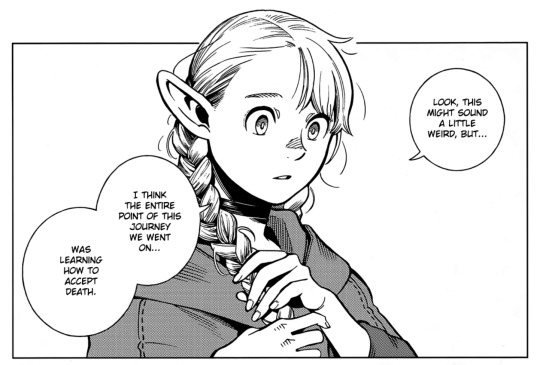
[ID: Manga panel of Marcille looking down in thought and saying "Look, this might sound a little weird, but...I think the entire point of this journey we went on....was learning how to accept death.]
(Panel is from the ehscans version, will update with official eng when the final volume releases)
I also love that the story takes the time to say, look, you can be in a hurry, but you still need to take care of yourself. Eat well, sleep well, What will you achieve in the service of yourself or others if you don't take care of the most basic qualities to survive first? The most recent episode is a good example of that with the focus on shuro vs. laios, and then there's this reinforcement of the idea by the end:
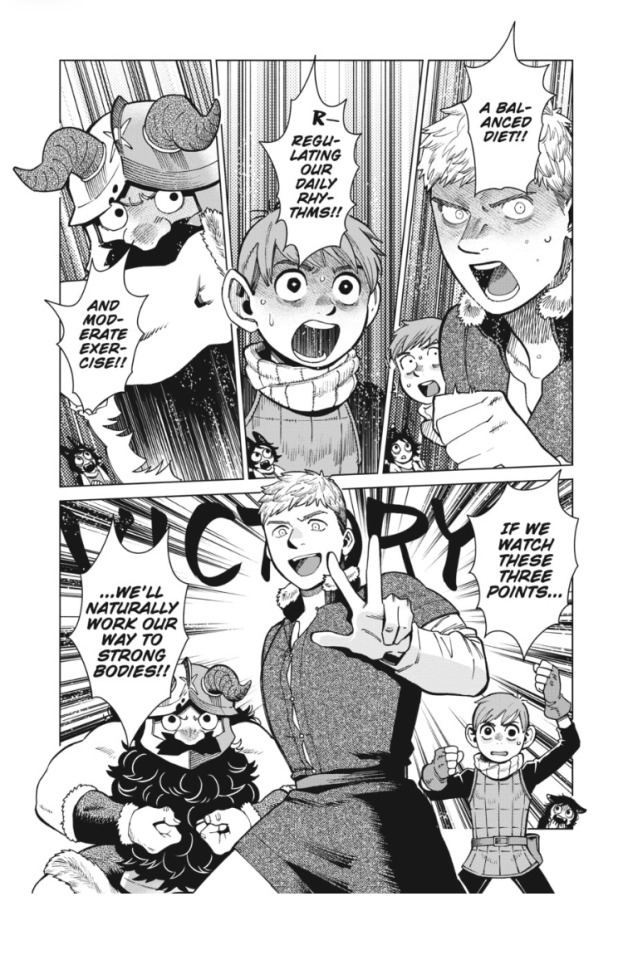
[ID: Dungeon meshi manga page showing Laios, Chilchuck, and Senshi shouting "A balanced diet!!" "R-regulating our daily rhythms!!" "And moderate exercise!!" respectively, followed by the three in various poses in front of the word "VICTORY" and Laios saying "If we watch these three points...we'll naturally work our way to strong bodies!!"]
Anyways this is all very disorganized and I have other things I need to do and I could write a more cohesive, actually organized thought piece on all of this with like, coherent points, but I don't really like to delve into literary analysis on my fandom account. it just lives in my head, rent free. thank you for coming to my ted talk tumblr. don't expect to see more of this, lol.
*I say same goal, which is not to say the only goal. stories can have more than one theme, it's ok if you disagree with me on this, but please bear in mind that I'm speaking very, very broadly.
#dunmeshi#dunmeshi spoilers#frieren#frieren spoilers#esque thoughts#dungeon meshi#delicious in dungeon#meta esque
57 notes
·
View notes
Text
The Poetry Library: Spotlighting Emerging Poets on Tumblr!

Welcome!
We wish to warmly invite you to our new Tumblr blog, dedicated to showcasing the talents of poets on this platform!
Our mission is to provide a space where poets can share their work, connect with fellow writers, and gain more exposure and recognition for their creative endeavors.
We believe that poetry is a powerful form of expression that deserves to be celebrated, and we are committed to promoting the diverse voices and perspectives of the poetry community on Tumblr.
Whether you're a seasoned poet or just starting out, we invite you to join us on this journey and share your words with the world.
In addition to featuring new poets on Tumblr, our blog will also offer weekly polls, where followers can vote on their favorite poems and writers that have been showcased. We will also provide in-depth analysis and discussion of famous poets and their works, exploring the rich history and evolution of poetry as an art form throigh out the week. However, our primary focus will always be on discovering and showcasing new talent on Tumblr. We believe that every voice deserves to be heard, and we are committed to amplifying the voices of emerging poets on this platform. We hope to provide a supportive and engaging community where writers can grow and thrive, and where poetry lovers can discover new and exciting works to enjoy. Let's create a vibrant and supportive community of poets on Tumblr!
The most exciting part is we'll be featuring two exciting rounds of submissions and voting. To enter, submit your best piece of writing and let the audience decide who comes out on top in polls. But first, we'll select the five most creative and high-quality submissions to feature in the contest. This is your chance to prove your writing prowess and compete for the grand prize! Don't miss out, submit your entry now! 🖋️🏆 The winner will have their winning poem featured in our pinned post! They will also get to choose what famous poem we will be analysing, for one of our daily poetry analysis posts!
So, whether you're a die-hard poetry fan or just looking to expand your literary horizons, I hope you'll join us on this exciting journey of discovering and celebrating the beauty of poetry. Let's get started!"
To submit your poem to be showcased use @dailypoetryforyou or #dailypoetryforyou for a reblog or send to our inbox.
#new poets on tumblr#poetblr#new poets society#poets on tumblr#poems on tumblr#writers and poets#poetry community#original poem#poets corner#Thepoetrylibrary#Dailypoetryforyou#writing community#literature#poetic#creative writing#writeblr#poems and poetry#poetry#new writers on tumblr#dailypoetryforyou#writers of tumblr#writers#spilled ink#writers and readers#bookblr#tumblr psa#Psa#writers supporting writers
200 notes
·
View notes
Text
My thoughts on how House Harkonnen in Villeneuve's adaptation of Dune are throroughly in line with principles of decadent movement:
Decadence is a word frequently chosen to mean the decline of percieved moral values in society. It is also how artistic movement of late XIXth century fascinated with artificiality and beauty chose to call itself.
To call Harkonnens decadent in the first sense of the word would be obvious to most moralists.
When it comes to the second meaning:
In an interview Villeneuve mentions that lack of hair is a cultural preference, a will of purity, certain detatchement from their own past. A deliberate pursuit of the unnatural.
Living under the Black Sun in an alien environment of which we see nothing but cities, artificial world of plastic and metal. The books included also forests (meant for wood production) but under such sun I'd imagine they might seem more alien to earthly life than even Shai Hulud, that is if they exist at all.
Chemicals in blood so abundant that Fremen find their water good only for cooling systems is something exquisite. At first I thought that this change was implemented to cater to audience tastes (which might find drinking such water gross) but near the end it was clear that it was not a piece of characterisation for Fremen but for Harkonnens. We live in a world way more natural than Giedi Prime and think how much mercury and microplastic there is in our bodies.
This pursuit and embracing of unnatural, thriving in it is what defines Harkonnens as decadent.
There is more to this than this brief analysis.
TLDR:
Harkonnen decadence (colloquial): Gladiator fights, slavery, sex slavery, gluttony
Harkonnen decadence (literary): Pursuit and embrace of beauty in the unnatural and artificial.
20 notes
·
View notes
Text
Art and Hedonism
Dorian Gray Weekly is over, so it’s finally time for me to post my analysis of my favorite gothic novel!
On the surface, The Picture of Dorian Gray seems to be a tragedy about what happens when you give yourself over to self-indulgence and sin. Dorian has been granted eternal youth so as to live out all his passions, and he spends his life becoming progressively more depraved until his conscience weighs upon him to the point of madness, and he destroys his own horcrux. Hedonism is bad, right? But it’s a little counter-intuitive for such a moral to come from Oscar Wilde. Why would Oscar Wilde, of all people, write a story that seems to condemn hedonism? Well… I don’t think he does. The book just doesn’t read that way. It’s a luxuriously self-indulgent, sensual book! I wouldn’t like it so much if it boiled down to “hedonism is bad.”
I think that this book is a metatextual critique of Wilde’s own philosophy. The Picture of Dorian Gray is not really about beauty, or pleasure, or sin. It is about art. It is about the nature of art and it’s relationship to the artist, and to the audience. It is a cautionary tale not about the dangers of hedonism, but the dangers of taking art too seriously. At least, that seems to be what it is according to its author. I’m not saying that I know definitively what the author’s intentions were, or that authors’ interpretations of their work are the only true and correct ones. Ultimately, an author’s interpretation of his or her own work is just one interpretation among many, and any true piece of art can be interpreted many different ways. But, looking at Dorian Gray through the lens of its own author might be the best way to answer this question. So, I am going to analyze that. For fun!
At first glance, Wilde’s preface doesn’t seem to have anything to do with the story. It’s a really short philosophical argument. Actually, it reads more like a pretentious internet comment, by making a bunch of beautifully-worded controversial claims and then sitting back and waiting for you to respond to them, almost as if it’s daring you to argue.
The artist is the creator of beautiful things. To reveal art and conceal the artist is art’s aim. The critic is he who can translate into another manner or a new material his impression of beautiful things.
[…]
It is the spectator, and not life, that art really mirrors. Diversity of opinion about a work of art shows that the work is new, complex, and vital. When critics disagree, the artist is in accord with himself. We can forgive a man for making a useful thing as long as he does not admire it. The only excuse for making a useless thing is that one admires it intensely. All art is quite useless.
There’s a lot more philosophical rambling that I cut out, but the short of it is this — art exists for its own sake. It exists to be admired, to be enjoyed. It exists to be beautiful, and that’s it. Anything that anyone else gets from it is simply what they get from it, and it says more about them than it does about the art. Creating art for any other primary purpose misses the point, if it isn’t outright dangerous.
Now, generally in literary analysis it’s a faux pas to psychoanalyze the author based on their work (which Wilde would probably agree with, since he writes that art should “conceal the artist”). There’s a lot of weird philosophy in this book, mostly put forth by the character of Lord Henry Wotton. Although Wilde identifies Lord Henry as something of a caricature of himself, we cannot say whether anything Lord Henry says is what Wilde really thinks. But this? The preface is written without the voice of a character or the context of a story. This is the author speaking as himself, in his own words, and therefore we can conclude that this is what he really thinks. That means that the only thing we can really say about Wilde and his philosophy based on this book alone comes from this preface.
Why is this preface even here? Why is it attached to this book? It might just be a futile attempt to cover his own ass, since he says things like “There is no such thing as a moral or immoral book” and “Vice and virtue are to the artist materials for an art.” That’s basically facing down the inevitable controversy that this book generated and saying, “don’t look at me, it’s just a story. It’s your fault for taking it seriously.” But, we could also use it as a framework within which to interpret the following story. Or, actually, wait, we’re not supposed to interpret it because it exists for its own sake, right? But why else would the this be the preface to Dorian Gray, if the story wasn’t meant to prove the preface’s point?
One more bit of metatextual content I want to bring up: Wilde said this about his characters:
Basil Hallward is what I think I am: Lord Henry what the world thinks me: Dorian what I would like to be — in other ages, perhaps.
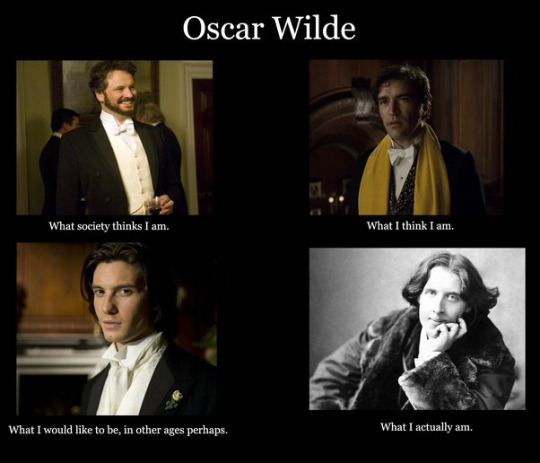
(I am way too proud of this outdated meme.)
So, all three of Dorian Gray’s main characters are meant to represent the author himself from various perspectives. Basil, the innocent and lovelorn painter, is how Wilde perceives himself. Lord Henry is how society perceives Wilde; he smoothly makes controversial philosophical statements about hedonism and beauty and whatnot, but doesn’t actually believe most of what he’s saying. And what a cryptic thing to say about Dorian, the naive-boy-turned-corrupt libertine. I guess I could interpret that as Wilde saying that he’d theoretically like to have the sheer daring and shamelessness needed to actually live out all of Henry’s philosophies. So… if that’s the case, then that puts a big question mark over Dorian’s entire character. If the message of the book is “hedonism is bad,” then why would Wilde want to be Dorian, even hypothetically? Dorian’s depravity is clearly a bad thing, right? Why would Wilde write him that way, then?
Because the book’s moral isn’t about hedonism, it’s about art.
Wilde warns the reader, “All art is at once surface and symbol. Those who go beneath the surface do so at their peril. Those who read the symbol do so at their peril.” But… that’s exactly what I plan to do. Sorry, Oscar.
So, let’s actually talk about the story now.
The Picture of Dorian Gray is a weirdly paradoxical work for the reasons I just spelled out — it seems like it should be condemning hedonism, but it doesn’t quite. It seems like it is a story about a man whose life steadily ruined by pleasure-seeking at the expense of all else, and yet… it’s just so decadent, this book. It’s full of philosophy about hedonism and the nature of good and evil, and it’s hard to tell just how much is espoused by its author and how much is condemned. Often the philosophy comes through Lord Henry, but sometimes it’s just there in the narration. And I love this book for that reason. I love thinking about stuff like that, so much. I love that this book practically smells like opium and tastes like rich chocolate.
The reason why I’m so interested in Wilde’s relationship to his own work here is because I agree with a lot of the philosophy presented in it. I know that Dorian Gray is being corrupted by Lord Henry’s influence, and I can see how that happens. But… still. This book is interesting to me because it seems to simultaneously espouse and decry the philosophy presented in it, which is why I think it’s a critique. “Let’s let this philosophy play a bit, and see what it does.” What if someone really did live the kind of life that Wilde himself was accused of living? When is hedonism healthy, and when is it not? Where are the limits?
Henry is Wilde’s caricature of himself. A lot of readers hate him for just how infuriating he is. All Lord Henry really does is spout controversial and kind of offensive statements. I’m sure we all know at least one person like that on the internet. Henry’s like the super intellectual version of a troll; he just says stuff to make people deeply uncomfortable and see how they’ll react. But he’s also persuasive — he’s a Mephistophelian character with a “low, musical” voice. He views Dorian almost like a science experiment. He admits that influence is evil, but then actively goes after an impressionable and naive boy to turn him into… well, whatever that portrait looked like in the last chapter. In chapter 2, he makes a long speech about how a man should “live out his life fully and completely […] give form to every feeling, expression to every thought, reality to every dream.” In short, screw Victorian morality. Life is to be experienced, so drink deeply of all it has to offer instead of wasting it constraining yourself. His best line, in my opinion, is:
The only way to get rid of a temptation is to yield to it. Resist it, and your soul grows sick with longing for the things it has forbidden to itself, with desire for what its monstrous laws have made monstrous and unlawful.
—Chapter 2
I kind of agree with this. Kind of. I do think that temptation is impossible to resist. The more you attempt to repress your desires, the more intensely you feel those desires. The best thing to do to avoid being tempted by genuinely dangerous things is to either satisfy the temptation using some safer outlet (or otherwise redirect it), or to avoid potential temptations altogether. The second line of this quote makes it clear that what Henry is really saying here is, “don’t let society’s stupid restrictions keep you from living your best life.”
And… yeah. If society shames you for being gay, whip out the rainbow colors! A lot of things (especially “sexual deviancy”) are only “temptations” because society and culture says that they’re wrong, not because they’re actually morally wrong. That’s an important distinction. We’ll get back to that. I believe that the difference between a temptation and a desire is that you can only be tempted by something dangerous and forbidden. If feeling lust as a young woman or man is considered morally wrong, then sex is a “temptation” — as soon as it’s considered a normal part of existing as a human, then it’s suddenly not a “temptation,” it’s just desire, and is a lot easier to deal with. You can find a safe outlet for it without feeling any shame, and without making any dumb mistakes out of sheer desperation.
Another thing Harry says is,
The aim of life is self-development. To realize one’s nature perfectly — that is what each of us is here for.
—Chapter 2
Yes! I have no argument here. None at all. However, reading between the lines, it seems as though Harry’s definition of “realizing one’s nature perfectly” is just experiencing everything in life and living it to its fullest, literally without distinguishing between good and bad experiences, or good and evil deeds. “Every experience is of value,” he says at one point. I don’t define self-development this way. My definition is complete self-awareness. If you’re self-aware, then you can be as self-indulgent as you want because you know where your limits are. Drinking at a party is fine, but you have to know your alcohol tolerance.
Dorian buys into this philosophy pretty hard. By chapter 11, his whole life has become one of pleasure, and… I’m still not disagreeing with a lot of the philosophy put forth by this novel:
The worship of the senses has often, and with much justice, been decried, men feeling a natural instinct of terror about passions and sensations that seem stranger than themselves […] But it appeared to Dorian Gray that the true nature of the senses had never been understood, and that they had remained savage and animal merely because the world had sought to starve them into submission or to kill them by pain, instead of aiming at making them elements of a new spirituality, of which a fine instinct for beauty was to be the dominant characteristic.
—Chapter 11
This is why I love this novel. I agree with this too. I have a fine instinct for beauty myself. Here, Dorian considers that maybe people in his society consider sensuality to be animalistic and savage only because they haven’t engaged with it at all, so it appears strange and dangerous. I also think that sensuality has been unfairly demonized for far too long, sometimes to the point where enjoying anything is sinful. I think it’s important to confront one’s passions (i.e. desires and emotions) and find a way to deal with them that’s both safe and satisfying. Like Dorian, I don’t have much patience for asceticism, or at least for the notion that it’s the most moral and spiritual way to live one’s life. Dorian attends church sometimes just out of curiosity, just becuase he finds it enjoyable or interesting, and he jumps around between different spiritualities the same way he collects jewels, textiles, and perfume:
But he [Dorian] never fell into the error of arresting his intellectual development by any formal acceptance of creed or system […] no theory of life seemed to him to be of any importance compared with life itself. […] He knew that the senses, no less than the soul, have their spiritual mysteries to reveal.
—Chapter 11
I feel called out by this. This concept of jumping around between different belief systems, using belief as a tool… that’s basically Chaos Magic in a nutshell. “Nothing is true, everything is permitted” definitely sounds like something Lord Henry would say. And I certainly don’t think that sensuality and spirituality are mutually exclusive, in fact, I think that the former can be a means of experiencing the latter. I worship Dionysus, for crying out loud. Often, the answer I give when someone on the internet asks me why I believe in magic or gods or anything else without evidence is “it’s fun,” i.e. pleasure.
And yet… my life could not be more different from Dorian’s. Perhaps the darkest part of my mind is something like Dorian, but in real life, I look like a stereotypical Victorian ingenue who’s always the first to die in a gothic novel like this one, and I’m quite pure and unsullied. I don’t do anything but sit in my dorm room and write on the internet all day. At parties, I freeze up and don’t speak to anyone. I’m still not much of a drinker, despite having been legally allowed to drink for several years now. My only real vice is sugar. I have no love life or sex life. I value pleasure becuase I can’t enjoy myself for the life of me, because I worry about everything all the time and waste energy on it. I’m not Dorian, and that’s probably why I can get away with hedonism.
Here’s the thing about our protagonist: he takes Harry much more seriously than he should. Harry doesn’t actually believe what he’s saying. He just says stuff, to be controversial and shocking. That’s what he does. But Dorian buys it, hard. Harry’s waxing lyrical about how there’s nothing in the world but youth and Dorian has the whole world at his fingertips because he’s pretty, makes Dorian obsessively concerned with his appearance. He barters his soul on a whim. And, then he proceeds to live the kind of lifestyle that Harry advocates for but doesn’t have the balls to actually commit to. Dorian is beautiful, rich, and able to do whatever he likes, which he often does. He has it all, but the truth is, he’s not really getting anything out of any experience. He goes through life like a passive spectator. This is probably because of the hedonism paradox, but it could also be because Dorian uses hedonism and collecting beautiful things as a means of escapism:
For these treasures, and everything that he collected in his lovely house, were to be to him a means of forgetfulness, modes by which he could escape, for a season, from the fear that seemed to him at times to be almost too great to bear.
— Chapter 11
Congratulations, Dorian, you ruined it for yourself.
I like beautiful things. I have more resin statues than I have space for. I have more perfumes than I actually wear. I spend a lot of my free time scrolling through artwork on Pinterest. I genuinely like museums and ballets and operas. I like dressing up in fancy Goth outfits even without an occasion. I like soft blankets. I like neoclassical music. I like decorating for holidays and making elaborate table displays and giving everything a distinctive theme. I deeply appreciate beauty. I don’t think it poisons me. I collect all these things because they make me happy, and that’s all. I think that happiness or pleasure is a worthy goal for its own sake.
But it has to be for its own sake, not for the sake of avoiding your problems, or to ignore the feeling of your sins crawling on your back. It’s like the difference between having a few drinks at a party for the fun of it, and becoming an alcoholic because you can’t come to terms with your psychological issues. Collect beautiful things because they make you happy, not because you hope they might fill the gaping void in your soul left behind by a portrait. Dorian definitely isn’t happy:
I have never searched for happiness. Who wants happiness? I have searched for pleasure.
—Chapter 18
Dorian’s whole life has been what I call “empty pleasure,” pleasure that is ultimately unfulfilling because it’s covering up a problem instead of being enjoyed for its own sake. If you indulge for the sake of avoiding something, you’re not enjoying the thing for what it is, you’re just desperately trying to take your mind off the thing you want to avoid nagging at the back of your brain, and the result is that you can’t really enjoy anything. Another example is gorging yourself on a delicious feast because it’s delicious, as opposed to binge eating. Or having sex with several people that you feel genuine affection for, as opposed to people you can’t even remember the names of. “Empty pleasure” is bad for the soul, but pleasure itself is not. The threat of “empty pleasure” is what has caused pleasure itself to be demonized for so long. It’s not the pleasure that’s bad, it’s the avoidance. Pleasure can’t be spiritual at all if its so superficial. Dorian’s hedonism is hollow and meaningless, so it corrupts his soul.
Confront your damn problems, don’t lock them in your attic! Once you’ve done that, you can really get the most out of life.
Thank you for allowing me all of that gratuitous philosophizing. Where was I? Oh, right — this book is a warning about art. Right.
Lord Henry’s last real contribution to Dorian’s corruption is giving him the mysterious “yellow book.” The “yellow book” is often speculated to be À rebours by Joris-Karl Huysmans. The book itself doesn’t really matter; what matters is the effect that it has on Dorian in-universe. It cements his hedonistic philosophy that had already been implanted by Lord Henry, and it seems to really drive him over the edge.
Dorian Gray had been poisoned by a book. There were moments when he looked on evil simply as a mode through which he could realize his conception of beauty.
— Chapter 11
So, there is no good and evil, only beauty. Dorian doesn’t really have a concept of good and evil anymore, just experiences in life, just whether things are beautiful or not. This is another pretty big problem with Dorian’s approach towards hedonism — he has no moral compass.
This idea that the book is “poisonous” seems to directly contradict the point that Wilde makes in the preface. “There is no such thing as a moral or immoral book. Books are well written, or badly written. That is all.” Why the contradiction? Dorian has made the mistake of taking art too seriously. The yellow book is “poisonous” not because of anything about the book itself, but because of how Dorian responds to it — because he takes it too seriously. The book wouldn’t be immoral if he just enjoyed it at face-value and didn’t take it to heart, would it? The fact that he becomes so obsessed with it is another nail in his coffin.
The first nail in the coffin comes much earlier. The scene where Dorian dumps Sibyl is critical. First, there’s Sibyl’s explanation of her perspective on her art:
The painted scenes were my world. I knew nothing but shadows, and I thought them real. You came — oh, by beautiful love! — and you freed my soul from prison. You taught me what reality really is. The stillness of the empty pageant in which I had always played. […] You had brought me something higher, something of which all art is but a reflection. You had made me understand what love really is. My love! My love! Prince Charming! Prince of life! I have grown sick of shadows. You are more to me than all art can ever be.
— Chapter 7
Until she met Dorian, Sibyl had been living through her plays. She quite literally “became” Juliet or Ophelia or whoever she was playing inside her mind, completely suspending her disbelief, because she just didn’t have much of a life outside of her acting. This made her a phenomenal actress, because watching an actor who’s that immersed in their role is also immersive for the audience. But when she met Dorian, life suddenly became more real to her and more meaningful to her than art. Sibyl completely lost that suspension of disbelief, and her acting skills along with it.
Dorian dumps her for saying so, in the most brutal way possible:
…you have killed my love. You used to stir my imagination, Now you don’t even stir my curiosity. You simply produce no effect. I loved you because you were marvellous, because you had genius and intellect, because you realized the dreams of great poets and gave shape and substance to the shadows of art. You have thrown it all away. You are shallow and stupid. My God! how mad I was to love you! What a fool I have been! You mean nothing to me now. I will never see you again. I will never think of you. […] Without your art, you are nothing. […] A third-rate actress with a pretty face.
Okay, there’s a lot to unpack here. Both Sibyl and Dorian have made the fatal mistake of taking art too seriously. On Sybil’s end, she’s been living through her art in a way that’s unhealthy. She doesn’t have a life or an identity beyond the persona that she adopts on stage. It’s like if your entire life was online, and the only people you’ve ever been in love with are fictional characters, and you didn’t have any life to speak of beyond that — oh. Okay, well, at least I have a sense of myself. Sibyl doesn’t have an identity of her own, so she borrows her identity from Shakespeare characters. Dorian, meanwhile, has fallen in love with this false identity. He doesn’t actually care about the person Sibyl actually is, because there’s nothing really there. When Sibyl feels like she’s finally found herself and become a person, Dorian is disgusted with her because she can no longer act, and she’s no longer interesting to him. Sibyl became an art piece and Dorian loved that art piece, not the person beneath.
This scene is so often misrepresented in adaptations. In most adaptations, the breakup is Harry’s fault, usually through giving him bad romance advice and teaching him to devalue women. For example, in the 2009 adaptation, Harry tempts Dorian to go to a brothel instead of seeing Sibyl perform, and Sibyl is concerned that she’s just another whore to Dorian. That becomes the focus of their breakup. Blaming the breakup on Harry makes it about hedonism; Sibyl feeling like Dorian is exploiting her for sex makes it about hedonism. It’s not about hedonism, it’s about art, which relates back to the preface. In the book, the breakup is entirely Dorian’s fault. It’s also the first time we see any real cruelty out of Dorian, which is then reflected by the portrait. Because this has nothing to do with Harry’s influence, I consider it proof that Dorian was never really that good of a person to begin with. He completely lacks empathy for Sibyl.
This is what results in tragedy. Sibyl commits suicide because she’s the pretty and innocent blond ingenue who’s always the first to die in a gothic novel, and Dorian officially begins his downward slide. Sibyl’s death is absolutely Dorian’s fault in every way. He doesn’t dive headfirst into hedonism until after that happens, and his hedonism is “empty” because he’s trying to numb the pain of Sibyl’s death. And it’s all downhill from there.
When Basil finally comes to see Dorian again, he’s appalled by Dorian’s reputation. Apparently, everything Dorian touches rots from the inside, so to speak. Sibyl becomes the first of many. Every person he’s involved with ends up too ashamed to show themselves in public, if they don’t commit suicide.
“…you were a man whom no pure-minded girl should be allowed to know, and whom no chaste woman should sit in the same room with. […] Why is your friendship so fatal to young men?” [Basil proceeds to describe several men whom Dorian was “inseparable” with who then ended up with disgraced reputations.] They say that you corrupt everyone with whom you become intimate.”
— Chapter 12
Dorian’s reputation is so sordid that all of the young women and men who become intimate with Dorian (interesting word choice) all end up ruined in some way or another. The same is said of Alan Campbell, the young chemist Dorian blackmails into deposing of Basil’s body. Apparently, they were “almost inseparable, indeed. Then the intimacy had come suddenly to an end.” Do I really need to spell this out? What does Dorian blackmail Allan with? We don’t know. It’s never said. But it’s heavily implied to be something about the very gay stuff that they almost definitely did together.
But — and this is one of the things that made the book so scandalous for its time — Dorian isn’t depraved because he’s bi. He’s just a bad person, and all of the poor young people who become involved with him suffer for it. Other characters in the story who are implied to be queer are not depicted as being evil. Basil, the most unambiguously gay character in the novel, is also one of the most innocent and the most undeserving of Dorian’s cruelty. Alan, too, is an innocent victim of Dorian, whatever he and Dorian might have done together in the past. During the scene in which Dorian blackmails Alan, his behavior implies that he is abusive as a partner, even outside the extraordinary circumstance of covering up a murder. Specifically, the “you made me do this” lines that he keeps throwing at Alan:
I tried to spare you. You will do me the justice to admit that. You were stern, harsh, offensive. You treated me as no man has ever dared to treat me—no living man, at any rate. I bore it all. Now it is for me to dictate terms.
— Chapter 14
How many other people has Dorian treated like this? How many of his lovers has he gaslit into believing that his abuse is their fault? How many people has he threatened with social ruin if they don’t do what he wants? (His own reputation can’t get any worse, after all.) He gives Alan a “look of pity,” as if to say, “this will hurt you way more than it hurts me.” Until the very end, Dorian seems completely oblivious (perhaps willingly so) to the effect that his actions have on other people, or worse, he actively enjoys it.
So, that brings me to Basil Hallward. Poor, poor Basil.
Basil knows his fatal flaw, and here we come back to taking art too seriously:
Dorian, from the moment I met you, your personality had the most extraordinary influence over me. I was dominated, soul, brain, and power, by you. You became to me the visible incarnation of that unseen ideal whose memory haunts us like an exquisite dream. I worshipped you. […] I was only happy when I was with you. When you were away from me, you were still present in my art…. […] One day, a fatal day I sometimes think, I determined to paint a wonderful portrait of you as you actually are, not in the costume of dead ages, but in your own dress and your own time. […] …I know that as I worked on it, every flake and film of colour seemed to me to reveal my secret. I grew afraid that others would know of my idolatry. I felt, Dorian, that I had told too much, that I had put too much of myself into it. […] Well, after a few days the thing left my studio, and as soon as I had gotten rid of the intolerable fascination of its presence, it seemed to me that I had been foolish in imagining that I had seen anything in it, more than that you were extremely good-looking and that I could paint. Even now I cannot help feeling that it is a mistake to think that the passion one feels in creation is ever really shown in the work that one creates. Art is always more abstract than we fancy. Form and colour tell us of form and colour — that is all. It often seems to me that art conceals the artist far more than it reveals him.
— Chapter 9
This is all one paragraph, by the way, and the whole thing spans an entire page. It is probably the gayest paragraph of the entire body of Victorian literature. Basil is clearly infatuated. He becomes so obsessed with Dorian that it’s almost unhealthy. This anguished declaration of love obviously echoes the preface, which is to be expected if Wilde sees Basil as a representation of himself. “To reveal art and conceal the artist is art’s aim.” Basil is afraid that the portrait doesn’t reveal Dorian as he is, instead revealing Basil’s salacious crush on Dorian. But he ultimately comes to the same conclusion as the preface — that art conceals the artist and simply exists for its own sake. Anyone is able to project onto art and see anything they want in it, but art simply is what it is, and taking it too seriously results in peril. Perhaps the true tragic figure of this book isn’t Dorian, it’s Basil, for having invested so much in this portrait. He doesn’t paint it for the sake of creating a beautiful thing, but for the sake of glorifying his crush. He treated Dorian like a god, and could not see past his projection of perfection to see that Dorian was becoming a monster until it was much too late. When Basil sees what has become of the portrait, he acknowledges that this is the only thing anyone is punished for in this novel: “I worshipped you too much. I am punished for it. You worshipped yourself too much. We are both punished.”
Dorian himself kind of becomes an art piece. He literally switches places with the portrait. The portrait shows the corruption of Dorian’s soul, and Dorian himself becomes a projection of both Harry “poisonous” philosophy and Basil’s unhealthy projection. He is admired intensely. He exists just to be beautiful, like an art piece, and no one can really see past his beauty. The novel’s premise is based around the idea that people’s sins are written across their face, and that beauty equals goodness. No one can believe anything bad about Dorian when they see him because he just looks so innocent and angelic. Before he learns the truth, Basil is disturbed by Dorian’s reputation but just can’t believe it: “But you, Dorian, with your pure, bright, innocent face, and your marvellous untroubled youth—I can’t believe anything against you.” Similar comments are made by other characters. Dorian is just too pretty to be as evil as he is. The subversiveness of the book comes from that premise. How often are beautiful people able to get away with anything in society, just because people tend to assume they’re innocent? It’s no wonder that Dorian is completely narcissistic.
Even Harry is incredulous when Dorian all but admits to having murdered Basil, thinking that he’s not capable of murder: “Crime belongs exclusively to the lower orders […] I should fancy that crime was to them what art is to us, simply a method of procuring extraordinary sensations.” Comparing crime to art is really interesting, to say the least. Most people would say that there’s nothing artistic about crime, but Harry isn’t most people, he’s a troll. And the only reason he gets off scot-free in this book is because he never commits the sin of taking art too seriously! Apparently, according to him, Dorian cannot commit a crime because he’s basically an art piece, and he just doesn’t have any need to kill someone. There’s another comment that Harry makes towards the end that suggests that he views Dorian as an art piece:
I am so glad that you have never done anything, never carved a statue, or painted a picture, or produced anything outside of yourself! Life has been your art. You have set yourself to music. Your days are your sonnets.
—Chapter 19
This echoes an earlier comment that he made about Basil being boring because everything that’s interesting about him, he puts into his art. Dorian’s life is vibrant because he directs all that same creative energy into living instead of into an art piece. Dorian himself is an art piece. And yet, while Harry is saying this, Dorian is feeling Basil’s murder weighing upon him.
The title refers not to Dorian himself, but to the portrait — a piece of art. The portrait drives the story, and even Dorian himself realizes this. Dorian’s undoing is that he can’t live with the guilt of his reckless murder and probably all his other sins, especially when he has a literal conscience staring back at him. He would have gotten away with murder just for being pretty, if he didn’t have a conscience. It’s far too late for him to redeem himself, so he decides to destroy the conscience. And… we know how that turns out.
The true “moral” of this book is really hard to parse out, which is maybe why we shouldn’t attempt to read the symbol and just take the whole book at face-value, right? There’s a lot going on here. There’s the inability to face up to one’s problems and deal with them in a way that’s healthy, resulting in any form of enjoyment being “empty.” There’s the idolization of beauty, always assuming the best of beautiful people even when they’re really quite awful. And there’s art — treating art like life or life like art is always going to come back to bite you in the end. That would make this a cautionary tale about what happens when art isn’t appreciated for its own sake, and is projected on so much that one confuses it with life, or sought as a source of morality. Art is not moral, it just is — reading (or writing!) a book from the perspective of a serial killer will not make you a bad person. This book is not a bad influence, it just is.
Even after having written all of that, I’m still not really sure what Wilde was trying to say about hedonism, so let’s ask him. According to Wilde himself, the moral of The Picture of Dorian Gray is, “All excess, as well as all renunciation, brings its own punishment.”
Both extremes are bad. Indulge in life, but make sure you do so with empathy, and for the right reasons! Find some middle ground. And most of all, don’t be afraid of your own portrait.
#dorian gray#the picture of dorian gray#dorian gray weekly#oscar wilde#literary analysis#gothic literature#gothic lit#art#hedonism#tpodg
134 notes
·
View notes
Note
yes, hello. I’d like to attack you with unrelenting happiness for the next few minutes of your time. it’s a feedback loop originating from and re-projecting back to you.
first of all, seeing your deconstructions after stumbling upon your ao3 makes me regret missing out on the live updates from you and the community here (aniwave comments are dogshit)
thank you for your posts. they let me think critically about and appreciate g-witch that much more from novel analysis perspectives. reading back a bit, especially to your take on scenes such as ep10’s communication clear up, and seeing these pieces given the gravity and respect they deserve, is taking the bite off of the series’ conclusion.
speaking of treating the sulemio shaped hole in the networks from now on, a red tempest is the kind of fic one wishes they could distill and take intravenously at maximum drip.
it won’t be for everyone, and you think law of causality is your best (haven’t read it yet), but it feels like you’re writing professional grade work just for me with how it seemingly doesn’t miss or waste a line. you present a tight ship regardless of whether that’s how you run it. the story feels compact and layer woven yet flows along seamlessly and with that wonderful sense of OC unlimited potential, dropping shadows here and there but keeping me fully on my toes. still in the rising action, but hopefully multiple full arcs…? (worth!)
the spots of canon that you spun into a universe feel weighted, alive with the way your voice gives an inherent gravitas even to small supporting details, and nothing is more alive than your characters.
you do them so well, it’s impossible to stress enough. regardless of where they’re going in the future, where you’ve had them come from and be is so genuine and, in most cases, compliant/paying close homage in their personalities. your dialogue is a breath of life. eri and chuchu particularly, and prospera especially.
there are small things that are subtle like suletta being a bit less anxious at the start, and there are larger things that are less subtle like all of prospera— yours of whom I love— but everything’s working believably and in sync as you craft this beautiful story. my only complaint is that I think the next release is gonna be a sulemio heavy chapter during the job’s sudden distress, and it isn’t this weekend’s release date yet.
there’s a lot else, like the many juxtapositions, the slow burn, and other emotional/literary devices, but while I’ve already spent too long trying to put just this much of a review/praise bomb together, I’ve gotta jaw on a bit more about your fantastic perspective work with clear voices for each heroine. it’s so exciting getting into the younger couple’s heads when it comes to each other. you’re probably going to slaughter me with elnora and notrette, but ch11’s suletta and mio are already doing it with their pining.
thank you. it’s a joy and a pleasure. I hope to read you for a long time to come. I’d ask to share some of your brain chemicals, but reading the product makes mine just as happy. I hope that means we share a brain cell; then I could rise and meet the caliber. o7
That’s so sweet of you! And absolutely; sending you spiritual braincells 🤗 I put a wealth of thought into all my works but something about Sulemio and Prospera✨ sends my brain into overdrive. Law of Causality and A Red Tempest are passion driven works that I’m happy to share with likeminded people. If you ever do decide to give AASB and its sister works a try you may find interesting connections. ART is a bit of a spiritual sequel in a way. Though admittedly ART Prospera may be a rascally devil but is intentionally more likable than LoC ‘Prospera’. I decided to make her pathetic in ART for funsies 👏
Thanks so much for the kind words ❤️Encouragement gives me wings to confidently move forward—just like our merry cast!
9 notes
·
View notes
Note
Mind analysing your poem a little? 👀
Incredibly long post alert to anyone who plans on reading this
Obligatory transphobes and terfs dni. The following poem is about and written by ‘them gotdamn trannys and queers’ and is about beautiful beautiful t4t sex
i am kissing you. on the mouth.
thank you so much for sending this in i genuinely love talking about my poetry so much muah muah muah!!!
Original poem if anyone wants to read it:
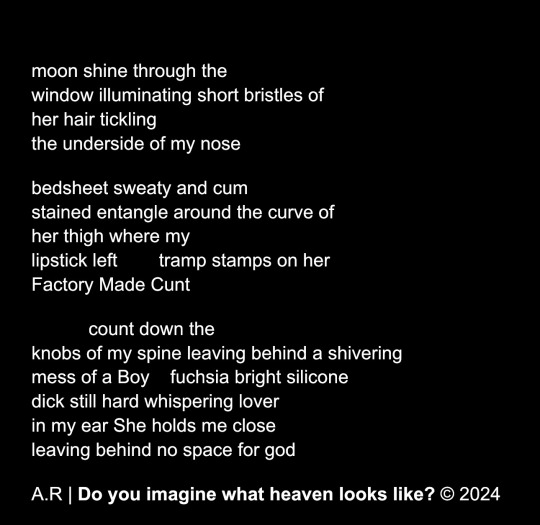
Anyway.
Welcome to Prof A. 's line by line analysis of his poem*. So buckle your seatbelts because this is gonna be loooong ride. Let's get started!
*Disclaimer: you might interpret some of these lines differently then i do and that is perfectly alright. poetry depends on everyone's own lived experience and that does not make any one interpretation less valid. i might have written the poem, but your interpretations are still just as true.
I'm going to start with inspirations and the title first because i love providing backstory and talking about other poets. Very specifically one poet that inspired me to write this actually. You can skip this part if you just want to know about the technical structures and literary devices and specific meanings behind the poem
The title was originally part of a completely different short story/prose poetry (i hadn't made up my mind yet) thing i was going to write but then never got around to finishing. but i just so happened to be going through my old writing (always keep a handy little notebook on hand. it has saved my life so many times) and find the little snippet i wrote and go, 'wait i actually like this very much' and decide to reuse it for something else.
but anyway, couple hours later im doing a voice of country thing for my literature class and analysing poetry by indigenous and aboriginal Australian poets. and i come across this little poem called 'a portrait of a genderkweer on fire' by a certain Ellen van Neerven (who belongs to the Mununjali Yugambeh people of south east Queensland btw) (go check out their poetry it is genuinely life changing) and it sticks with me you know. it really does. poc trans people writing about their lived experiences as poetry? why didn't I, a poc trans person, think about that!
(no seriously, in all my years of writing poetry it for some reason never occured to me to write about my people. so genuinely thank you Ellen for that!)
now i've already got a first line ive been wanting to use, i am feeling extremely queer and angry because of unrelated transphobia a friend faced and i have a mechanical pencil and notebook in hand.
So i start writing.
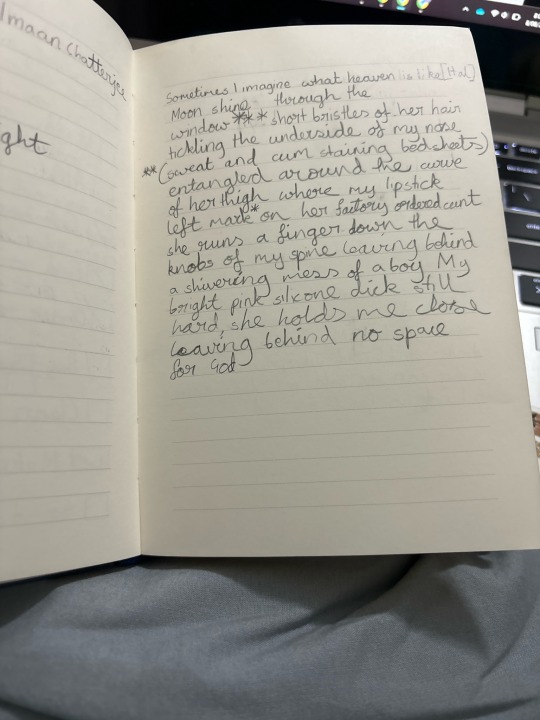
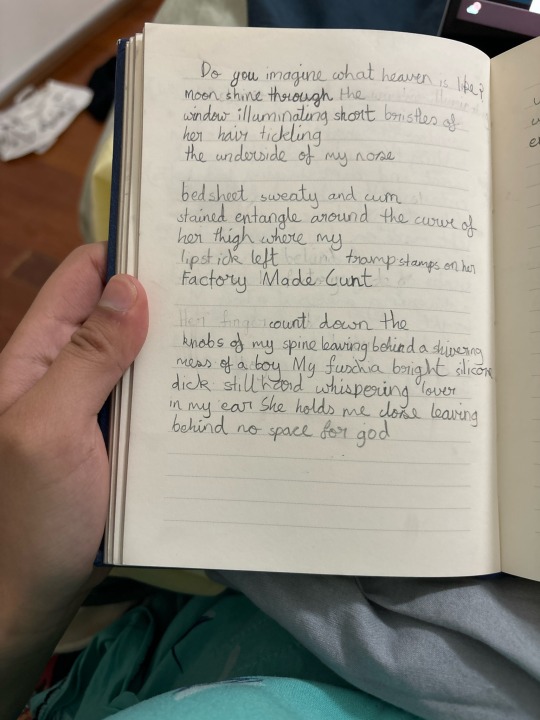
(Apologies for my awful handwriting. i was writing while pacing and waiting for the bus)
Alright, kiddies. As you can see, most of the poem was taken verbatim with very few changes to the actual word choices behind the poem. (I will be doing a deep dive into the language as well, dont you worry)
The biggest change made actually is the switch from prose poetry to a more traditional stanza poem. i made the decision to do this actually because originally the poem was meant to be much longer and incorporate the original piece i decided to rework this into.
The quote 'sometimes i imagine what heaven is like' was meant to be repeated at the start of different stanzas which would be written in prose form, each detailing a different phase of queer love in secret, from secret night time affairs (this specific poem) to escape and loving loudly (the original thing i wrote). however, it didn't really work the way i wanted it too and i decided this was fine as it was and started to edit and play around with it a bit.
i changed 'sometime i imagine what heaven is like' to 'Do you imagine what heaven looks like?' and made it the title of the poem instead of the first sentence. the poem itself now becomes the narrator's idealised image of what heaven would be like for them. i go a bit more on depth about this in point 3 of Changes to the structure
Changes to the structure
As mentioned, the first change was from prose to stanzas. I'm about to get full on literature student about this so bear with me
Each stanza has one (1) extra line from the previous one in the poem. For ex: stanza 1 has 4 lines, stanza 2 has 5 lines, and stanza 3 has 6 lines. this was a deliberate choice i made. not to be too english teacher about this but it shows the narrator is coming to some sort of a revelation soon. (i wont spoil too much about this tho. for reasons)
ENJAMBMENTS!!! if you don't know what an enjambment is, it refers to a line break that interrupts the flow of a sentence: usually the line usually doesn’t end with punctuation, and the thought continues on the next line. now, i heavily fuck with enjambments in poetry. which is why i was so eager to use them over here. they represent a kind of stream of consciences here rather than structured thought. enjamments also help in rising tension and drawing the reader in deeper, making them want to continue reading to find out what happens next.
syntax: now the poem is actually meant to be wish fulfilment of sorts for the narrator, where they imagine all the things they wish they could do with their lover. that's why its not written in present tense using sentences like 'the moon shines' or 'the bedsheet are sweaty...'. The narrator is basically telling the moon to shine through his windows and the bedsheets to be stained and his lover to run a finger down his spine. we don't actually have anything written in present tense till 'She holds me close...'
the random spaced out/missing words a.k.a SYNTAX 2.0! because yes. there are certain words missing. ive intentionally left a space between 'left' and 'tramp' and between 'Boy' and 'fuchsia'. there is also a missing word before 'count'. now, if you read my original version of the poem, you can find out what words are actually supposed to be there, but when i put it into verse form, i found that many of the words id written in prose didnt actually fit. but without them the sentence kind of fell apart. so i decided to leave blank space where those words were supposed to go to signal to the reader that something is missing while not actually needing to mention that
4.5. just like the stanzas growing by a single line in each verse, the missing words also increase in a frequency of one (1), zero of them in stanza 1, a single missing word in stanza 2 and 2 of them in stanza 3.
5. capitalisations and Punctuations to immerse the reader more and help with the stream of consciousness style of the poem, most of the poem is written in lowercase with no punctuation being used throughout the only things capitalised are 'Factory Made Cunt', '... Boy' and 'She holds me...' you may have noticed a common string between these words is they are all related to gender. 'Factory Made Cunt' especially was written to put emphasis on the inherent transness of the character while '... Boy' was capitalised for this and to have more of a visual distinction from the black space that follow. 'She hold me...' however was written to directly contrast the lowercase 'god' and how to the narrator their lover is the divine being instead of any so called god (which is weird because i personally am a religious person).
Language choices and line by line analysis:
'moon shine through the' - moon shine over here is meant to show how queer people often can only exist in the freedom on night time and their love is often only seen within the secrecy of moonlight and not under the brightness of the sun. (also all moon deities are queer icons).
A friend of mine also provided the connection to 'moon shine' being a reference to illegal moonshine (home brewed extremely strong alcohol) and how that itself was a reference to illegally transtioning without the goverment knowing/able to get medical stuff
'window illuminating short bristles of': the narrators lover being a trans girl with a buzz cut was an intentional choice to show that gender expression does not equal actual gender. buzz cuts are traditonally associated with men, but also many butches in the community rock a buzz cut as well and its too show that there's no right way of being trans and presenting as a woman.
'her hair tickling' and 'the underside of my nose': im going at these two together since i don't really have much to say about them separately. it's more meant to be visual imagery, reinforcing the two are intimate in some manner but not really expanding whether it's platonic or romantic yet. its also meant to evoke the image of the narrators lover lying on their chest and but the narrator not caring about the fact that they might be slightly uncomfortable but loves their girl too much to push them away
'bedsheet sweaty and cum': confirming the fact that they are in a sexually intimate relationship and are lying post-coital (i cannot believe i just used the term coital. this has become an academic essay)
'stained entangle around the curve of' - some sensual imagery and tactile imagery
'her thigh where my' - more imagery
'lipstick left tramps stamps on her' - tramp stamp is a reference to how trans women are often oversexualised and is meant to be a reclamation of their own bodies and sexualities
'Factory Made Cunt' - emphasis is placed on these words by being the first capitalised words in the entire poem as of yet. its meant to kind of condemn the never ending discussion about trans women's bodies and especially their genitals and the hyper sexualization of girlcock by fetishisers (not that there is anything wrong with girlcock. this user loves girlcock and boypussy). its kinda like the narrator is saying 'so what if her pussy is surgically made. how does that make it any lesser)
' count down the' - once again, not really much to say
'knobs of my spine leaving behind a shivering' - more more sensual imagery
'mess of a Boy fuchsia bright silicone' - just like how 'Factory Made Cunt' condemned speculation on trans women's bodies, this condemns speculations on those of trans men. it also challenges the assumption that just because you are a man or that you top, you immediately have to be the dominant one in the relationship. 'fuchsia bright' was also a deliberate syntax choice. the silicone is the bright thing here not the fuchsia giving the narrator the chance to have a dick which is bright/illuminated moment for them as a trans boy.
'dick still hard whispering lover' - the 'dick still hard' part was meant to be an ironic comment on how cishetero patriarchal society is always going about people in sapphic relationships using dildos and saying that they should just fuck a real man instead of a fake approximation of one (not that they are that eloquent) but the joke is that while those criticising sapphics who use dildos actually need to wait for a dick to get hard again before they can have sex while the sapphics don't have to worry about that since dildos are always hard. also the 'whispering lover' thing was written completely out of spite to prove the friend with the moonshine interpretation wrong when she said that lover cannot be an appropriate term of endearment and to her credit she has since changed her mind and has been very gracious about it and glad to be immortalised in a poem in this form
'in my ear She holds me close' - more more more sensuous imagery along with auditory imagery of whispering in ears.
'leaving behind no space for god' - a play on the popular phrase 'leave some space for Jesus'
Anyway, this turned out way to big and way to detailed for a simple little analysis but once again, i am a student of literature and this is quite literally my life's passion, made even easier since i have direct access to the writer's brain instead of having to make my own assumptions and spend hours researching.
I hope you enjoy if you or anyone else even bothers to read through considering just how much i actually wrote. but yeah, here's my final literary analysis of my poem Do you imagine what heaven looks like?
5 notes
·
View notes
Text
The thing with that NYT article that astounds me is that if Taylor (or whoever the subject was) were closeted, what did the author think they would accomplish by outing her or any other public figure in the same position? It reeks of sensationalism and tabloid journalism, and the author of all people would have to know that anything published in the US’s newspaper of record would carry weight that gossip blogs wouldn’t. They can’t hide behind a “it’s just hypothetical!”, even in an Op-Ed, the way tumblruser1389 could around here.
And that’s the real danger here. I’m sure on a personal level it’s deeply hurtful to Taylor because it’s yet another instance in which she is being treated like an avatar and not a human being. (And it’s so unfortunate that it involved a community that does face hardship and discrimination and would benefit from more representation and acceptance at that level.) But on a larger scale, the real issue imo is that the piece gives permission to the chronically online and mainstream readers alike to speculate and publicly out people. Except many of those speculated on probably don’t have the security of someone on Taylor’s level and not only is it reprehensible to force people to do so, it could have real life consequences that could pose actual danger to their personal and professional lives. If the New York Times can do it, why shouldn’t I? It’s dehumanizing.
Yes, it’s sad that it’s 2024 and coming out is still a big deal; in an ideal world, people could love who they love and identify how they want and no one would bat an eye, but that still isn’t the case and I understand why some look for representation from public figures to make them feel seen. But, until that person says so, you can’t assume they are something they’re not. It’s deeply hurtful to them and the community you want them to represent, and it perpetuates the same kind of trauma. Because it sends a signal that there is a gotcha and someone will force you to do something before you’re ready or willing.
As many have discussed here recently, it’s one thing to interpret Taylor’s work through a queer lens. That’s literary analysis! That’s what art is for! And it’s a beautiful thing to be able to interpret a piece of work and relate to something in your own life! But interpreting is not assigning. It’s one thing to say, “‘Ivy’ sounds like it’s a wlw affair,” and write an essay about it — and for all we know, maybe that’s what Taylor imagined when she wrote it. That’s a totally valid interpretation and offers an interesting perspective. But that doesn’t mean that was Taylor’s lived experience. (Just like she may have imagined murdering her best friend’s husband but that doesn’t mean she’s actually done it.) Just because Taylor often writes diaristic music doesn’t mean all of it is, and doesn’t mean she can’t take diaristic elements (eg feelings of hurt, loss, envy, infidelity, etc.) and apply it to other stories. That’s what artists do. For someone in one of the world’s most influential newspapers to claim interpretation as fact and create their own narrative about an actual human being living in the real world is hurtful, along with being just plain lazy journalism. (I know as an opinion piece it’s not strictly journalism, but the NYT is and should have known better.)
I don’t really have a coherent way of tying this all up, but it’s just so annoying that it’s 2024 and we’re still having this discourse.
#on the flip side that’s why I was also uncomfortable with Taylor’s team name dropping SM in its response#because it’s perpetuating the same thing and putting the glare on him for the same reasons she’s so uncomfortable with it#unless SM and his team are ok with it
10 notes
·
View notes
Text
Tiqqun cursed me to Intellectual Depression...
By : Santiago "Weebu" Pemo
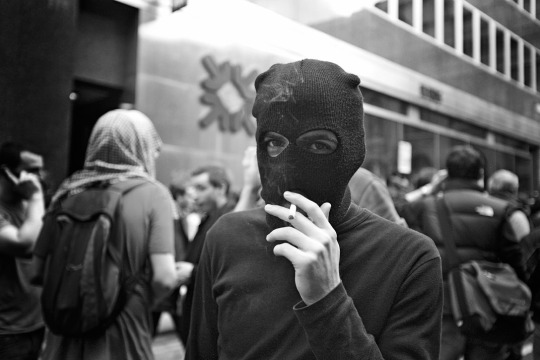
As a French reader, I am much more impacted and attached to French philosophy and its theorists than most people. I feel a deep connection to the language I grew up with and these theories that so deeply resonate with my being, some ideas and vague concepts I have had since the dawn of my political consciousness, that also appear to be fundamental for these intellectuals, way before my time. There is something truly eye opening about finding deeply avant-garde theory in your language, that has also pretty directly impacted the politics of your own country, to a certain degree.
Tiqqun for me is the representation of the search for ideals, the insatiable pursuit of knowledge that I experience, and will experience. Dense and complicated, pretentious and critical, Tiqqun's works have everything to be categorized a million times by fruitless adjectives, but the only one truly fitting for such a titan of theory is "impressive".
But I'm getting ahead of myself. Tiqqun was a French philosophical journal, even if i would categorize it more as a periodic publication and recollection of intellectual texts. It was actively published between 1999 and 2001, supposedly dissolving after the 9/11 attacks for fear of repression and a needed break from the political world, as some claim. Why would they do that? Well, Tiqqun was THE most radical publication France ever got a hold of, but specially because the tradition it subscribed into was not a typical one. Insurectionary Anarchism, Situationism and Communization (In both a general and specific manner, we will go over that later), as well as the large French school of Post-Structuralism and Post-Modernism, Tiqqun is a beacon of modern French radical philosophy.
And for how complex what the journal propositions can be, It is no surprise that this lovely piece of theory has gone severely unnoticed for the average "leftist". It's a literary piece at heart, a several hundred pages long poem, it's a work of passion to the world of philosophy and theoretical politics. And that is what makes the publication one of the most beautiful yet disheartening concepts to read, as well as being absolutely groundbreaking, and a read that will challenge anyone's unprepared views about many topics, since it introduces complex notions of the "Invisible Party", "Metaphysical Critique Exercices", "The Theory Of Bloom" and of course, their own spin on "Communization Theory".
"Communization" is a complicated topic, a theory not for the weak minded, something pretty much existent in the own confines of our exhausted and depressed intellectual capacities, but it still manages to be fresh enough to be adaptable to everyone. The lack of dogmatism in the writing, the synthesis of concepts and the post-post modernity of its analysis is unlike anything you can currently get your hands on. But the core concepts are understandable, and can make you rethink your own base ideology from the ground up. At least that is what happened to me.
Communization, as the theory that rejects the DOTP from a marxist understanding of revolutionary action and procedures, is not a common piece of thought even in online discourse. Im not here to explain in depth this concept (as it is the case for another article of mine), but what Is important here is how Tiqqun took this theory, very marginal Left Communist piece of theory, and built it, almost single-handedly, from the ground up once again. The revolution that Tiqqun brought by explicitly importing Insurrectionary Anarchist ideas, as well as a general anarchist ethos too, to a concept that wouldn't necessarily hold it, was the stepping stone towards the erasure of "Anarchist"and "Statist" labels in the ultra left, leading to a much more fluid interaction and development of ideas, breaking the dogmas that can follow the Meta-Narratives of certain strains of "left wing" ideology. Meta-Narratives that still hold a lot of theorists back when it comes to the full liberation of their brain, towards a greater understanding of the world, even if that might come with far greater consequences, like absolutely breaking your hope and desire for the world, but not in a very Nihilist way, but a purely emotional sense. Tiqqun is very emotional, and more than anything, it appeals to the individual's understanding of them, and what that said individual wants to take for their own personal benefit. It's what I would call some kind of very well executed decentralized communal thought process.
And this is key In my personal development, as I originally came from a much more orthodox Anarcho-Communist conception of ideology, with its own dogmatism and ingrained fallacies that even back then bothered me, this fluidity and lack of strict structure that the ideas of Tiqqun have allowed me to break down the walls I imposed on myself.
And that is what makes their version of Communization so specific. Not only they detail and talk about the general concept that an author like Dauvé could have, but they go further than him. They always do. That is the magic of the journal, going as far as it is possible to think.
Their analysis is clean, including some fairly (and sadly) forgotten theories like Situationism at the heart of their vision, specially when they mention anything to do with the "invisible party". Avant-Gardism is the core ethos of what Tiqqun wanted. They did not want to be comprehended by the general population, they didn't write for us to use our texts as proof of the subjective validity of our ideology, but a job. They had a specific vision of the world, a ruthless one, one that did not spare any badmouthing of any concept as long as it fit their worldview, one that is marvelously constructed. A worldview Guy Debord would have been proud to read.
But you simply cannot just read Tiqqun for enjoyment, as that would be too complicated for anyone with less than 50 degrees on philosophy. You read Tiqqun to experience the whole thought of the "Invisible Party", and you do so with an aim : to criticize your ideas.
Tiqqun, for the more well read and fundamentally built reader is primarily an exercise for contrasting metaphysics. The variety of the texts, and the diversity of what they are able to deal with in those gives a complexity to their thought I have barely seen anywhere else. Tiqqun is not a manifesto, Tiqqun is a collection of the greatest thoughts of the french ultra-left of the 90's, one very much involved with all the social movements of its time but retaining its "armchair" critique typical of other strains of Left Communism. But why would anyone listen to them? Why care for Tiqqun? Because the modernity of their ideas is something that will put you in a state of "intellectual depression".
No, this is not a Deleuze reference (even if it might as well be). It is simply a statement to the greatness of Tiqqun's writings, ones that challenges you so much, you stay in a state of perplexity that is hard to achieve with most theory collections. Tiqqun made me depressed, because it challenged my traditional views so much, that I could never conceive traditional modern theory the same way. It radically affected my relationship with not only political and philosophical texts, but also with the politics that affect my day to day life : parliamentary politics, for example. I no longer trust what I used to, I no longer want what I wanted, and I no longer seek what I tried to find when i first embarked on the world of politics. Nothing feels enough, I want more. Satisfaction became a secondary need, but reflection and constant upgrading of my own ideas is what I aspired to, like I mentioned at the beginning of this article.
Even my actions, at the scale of my fairly boring small town changed, the discourse I have with people interested or not on politics has changed so much, to the point that I feel as my ideas are exclusive to me. Exactly what Tiqqun is all about, but that does not mean it's a concept full of positives, specially living In a world where our action is necessary and important, even if at times fully pointless.
Holding radical positions in pretty much any aspect of thought is exhausting in the stage of deceiving and worse than before social democratic compromise reformist policies of the present day, one that does not even serve the petty bourgeois it sought to protect to begin with. Repeating the same things, same concepts, theories and ideas over and over again to people oblivious to them is the greatest challenge an active militant or passionate anti-capitalist can face. But the breath of fresh air Tiqqun's expression and interpretation of the classics, as well as an introduction to the newer theories that SHOULD take a larger part in our new theoretical and practical developments is very much needed in the modern day landscape. It's the best of both worlds, In a style you can hardly dislike. Why? Because of the variety of it.
As I mentioned at the beginning, Tiqqun is a collection of texts, but it didn't exactly end in 2001. The publication of several and very complex, pretty much full scale books around 2004-2010 revitalized the scene, specially taking into account how un-finished their work can seem to some. It is not a fully developed program, a truly new political ideology or thought model, but simply good theory, and these newer additions completed an already rich project.
But what was important about Tiqqun's post-mortem publications is not anything published under their name, but more so an associate group that can very much be the same people that conformed the original secret council of the Tiqqun redaction, that being "The Invisible Committee".
As many of you know, this neo-Tiqqunist collective made one of the most important works out of the modern french scene, named "The Insurrection To Come", a book so popular, it was the object of all the far right moral panics on an international scale, doing ravages to the brain of Fox News redactors.
But what really mattered there was how it affected my perspective, as it was one of the first texts of the sort that i ever had the opportunity to read, and is considered a cornerstone of the insurrectionary movement as a whole, revered globally and by a large variety of individuals, on and outside of internet discourse.
Yes, it is not Tiqqun, but its closeness with the original intellectual group makes it a product of the original thought of the Invisible Party.
Game changing, In every aspect, even on terms of rights and politics, on domains of repression of radical thought, even. In November 2008, Julien Copat, one of the known members of Tiqqun's redaction was arrested by french authorities under pretext of "Participating on a terrorist action that derailed a train" In a small locality in the rural center of the nation (Tarnac, hence giving its name to the "Tarnac Affair"). And this case, that lasted until around 4-5 years ago, caught enough traction for my young and impressionable brain to know about it, years later when the case resumed after a long break.
And this was the first case I ever saw where radical thought leaders were attacked falsely based purely on the radicality of their writings, something pretty much without precedent at that time. And it was the reason why I even know about the publication to begin with, and so was the case for a large amount of young teenagers, who got a newly ignited passion towards these ideas, brewing ever since the intellectual rebellion of May 68, bringing more air to the scene than any other project before. It has been one of the few judicial cases I went deep in, and that exposed more clearly than any other case in modern times, how the punishment great thinkers receive under the rule of the bourgeoisie. It was an event that radicalized me indirectly.
The reason why I consider Tiqqun to be so heavy on my brain is because of how real it is. Never had I seen a fusion of extremely theoretical and technical philosophical theory mixed with a focus on praxis without precedents, specially in a time where political actions from the proletariat are ramping up in power, intensity and frequency once again, like a clock. Tiqqun represents the non-nihilistic view of revolutionary action, with the sadness that comes with knowing the truths behind the movements and the ideas that power them. That is what brings sadness to my soul. It was a necessary step in my development, and I feel as if it's just a reflection of what the general population can feel about the exploding liberal status quo, but the people on our side of theory know the reasons why.
Tiqqun gave me the keys to understand better the world but also the revolutionary thought that i wholeheartedly stick to, and at the same time, Tiqqun amplified my Capitalist Realism to levels I had barely ever seen before. Tiqqun, In all its greatness, doomed me to intellectual depression, and I will not recover this time.
Thank you Tiqqun, really.
19 notes
·
View notes
Text
My Demon: Theories and Analysis for Eps 9-10
Happy New Year, Readers!
I hope 2024 brings great things for everyone. I delayed posting a T&A post for Eps 9-10 partly due to holiday busyness and partly because I'm tired of plagiarists taking my theories and ideas and reposting them as their own. For those who have been my followers for a while now, you know this has been a constant issue for me. I don't think it's hard to give someone credit for original ideas that they've come up with.
I thought I wouldn't encounter this same issue with the MD fandom, but I was wrong. I saw a Twitter user taking multiple theories of mine and reposting them as their own. I don't rule out the possibility that people can have the same thoughts, but when you're specifically mentioning things only I had talked about and no one else did, it makes you look guilty as hell.
Hours after I posted my T&A for Eps 1-6, they decided to take multiple theories of mine and post them to their account. One example is how they took my idea that the cross necklace either once belonged to Do Hee or was given to Gu Won by Do Hee. Another example is how they took my idea that the cross tattoo on her wrist symbolized she was the source of it all. There are many more examples, but I don't want to spend all my time listing them all out. It's the same old spill, though; they're doing it for clout. In the future, I won't be posting my theories or analysis for eps until a day or two before the newest episodes come out. This ensures the cheaters won't be able to use my theories for their own personal gains. But enough about this piece of trash.
I want to forewarn everyone this post is very long like 17 pages so definitely take a break from it whenever. If you have any questions about anything I've written so far for MD, please feel free to use the "Ask Me Anything" button and I'll try to answer your questions ASAP! There are probably grammatical mistakes...it's hard to edit 17 pgs worth of shit haha. Finally, if you choose to use my stuff, give me credit, that's all I ask.
Time to put on our thinking caps to analyze and theorize!
Section 1: General Thoughts
Eps 9-10 were top-notch! I admire the writer's ability to incorporate twists inspired by literature, movies, kdramas, fairytales, art, math, etc. One major theme appears to be the profound impact our choices can have, leading to unintended consequences not only for ourselves but also for others. The show also delves into the coexistence of seemingly opposing elements, such as angels and devils or odd and even numbers.
The clock in the intro, featuring angels and devils, draws inspiration from MC Escher's "Circle IV: Heaven and Hell." Escher, influenced by mathematics, created art that explored the interlocking nature of opposites, mirroring the eternal connection between Do Hee and Gu Won.
Now, let's discuss the intricate math woven into this show. The complexity of the numerical elements has forever changed my perception of numbers. For instance, I once saw "snake eyes" as 1+1=2, but after MD, I now see it as 11. Similarly, 10 used to be just 10, but after MD, I see 01 is its mirror image, and 1+0=1.
MD provides a fresh perspective on Dostoevsky's "Crime and Punishment" and "Demons," exploring psychological complexities, moral and existential dilemmas, societal and political systems, faith, morality, isolation, alienation, guilt, internal struggles, and redemption. Much like these literary works, MD delves into the psychological toll of potential crimes and the impact of abuse on individuals. It's a concoction of various influences, reminiscent of Frankenstein, weaving elements from Romeo and Juliet, DAYS, TOTNT, Goblin, Lucifer, The Bodyguard, Greek Mythology, Christianity/Catholicism, Cinderella, and Beauty and the Beast.
The overarching message from MD seems to be that everyone harbors inner demons, and it's how we confront and handle these demons that defines us. Our choices can lead to positive, creative outcomes or negative, destructive consequences, shaping not only our self-perception but also how others perceive us—angelic guardians or malevolent demons.
Section 2: Gu Won's Past
2.1 Gu Won's Name: A Divine Revelation
As I revisited my previous ideas and rewatched episodes, Jang Mi's line, "I'd say the heavens or his ancestors did," really got me thinking. Recall that in my last post I theorized Gu Won might be related to Madam Ju. Well, after I saw Jang Mi's comment, I felt like I might be onto something.
I repeatedly wrote "Ju Yi Sun…Ju Yi Sun" and thought about ways my theory could be wrong (like, what if he's a Park? Kim? Choi? Cho? Jin?). That's when it all started clicking. Gu Won's current name had ties to Catholicism/Christianity, so his past name must've been the same. Out of all the last names mentioned in this, only one was associated with religion--Ju. You see, there's a wordplay in Gu Won's past name, Ju Yi Sun. In Korean, "Ju" means "Lord," but it can also mean "wine" and "week" (hint hint… the show's got themes of Catholicism/Christianity and time, haha). The second syllable of his name, "Sun", sounds like "son". When you piece it all together, you'll realize Gu Won's past name means "Lord's son" aka Jesus. I've now realized the clues proving he is a "Ju" have been there since the very start, but I just didn't connect the dots until now haha. Additional clues are available on my Twitter for those interested!
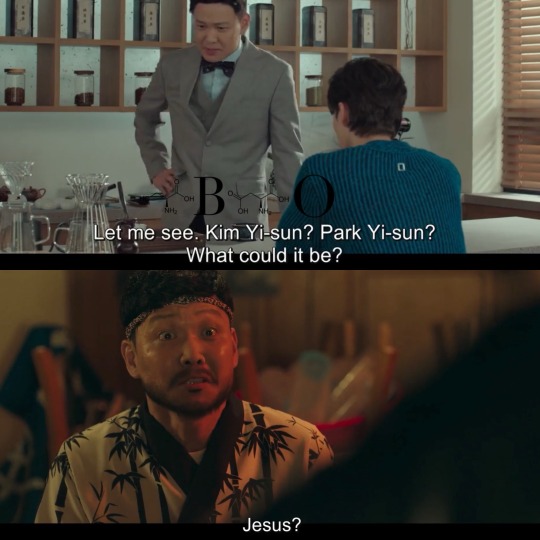
I doubt we'll witness Gu Won pulling off miracles like walking on water, but he has showcased some Jesus-like feats. Remember Ep 1, where he performed the fish miracle for Park Bok Gyu? That's similar to what Jesus did (miracle #6, to be exact), haha. Then in Ep 3, he healed the sick, echoing another one of Jesus's miracles. And in Ep 10, Jesus—I mean Gu Won—brought Do Hee back from the dead, a blend of miracles #11, 15, and 33. Who knows, maybe we'll get to see another Jesus-like miracle before this show wraps up? Perhaps calming a storm at sea or casting demons into a herd of pigs, haha.
Throughout the series, Gu Won has been frequently seen with wine, a symbol often linked to Jesus and representative of his blood. In Ep 9, Gu Won tells God he prefers wine because it's the tears of God. Interestingly, in the original myth, these tears were attributed to Jesus, not God. Jesus shed tears when witnessing Lucifer Morningstar's fall from Heaven. The writer's choice to attribute the tears to God may hint at their intention to portray Gu Won as a blend of Jesus and Lucifer Morningstar. It makes you wonder though if God shed tears after Gu Won died the first time around or when he started going "bad", doesn't it? Haha.
For those unfamiliar, Lucifer Morningstar earned the moniker of the Devil following his rebellion against God, leading to his descent from heaven into Hell. Before this rebellion, his name carried positive connotations such as light bringer, dawn bringer, and the morning star, associated with the planet Venus and the Goddess of Love. Examining Won's former name, Yi Sun, the word "Sun" stands out. Given the sun is a type of star, this connection holds significant meaning. Coupled with the dawn imagery in Ep 1 and Ep 10, the connection to Lucifer Morningstar becomes apparent. Gu Won's story started with him playing the roles of Jesus and Lucifer Morningstar. After his fall from Heaven, he transformed into the Devil. As Gu Won reunites with Do Hee, his journey comes full circle, bringing him back to his original identity as Yi Sun aka Jesus/Lucifer Morningstar.
If Gu Won is indeed a Ju, it would introduce some serious drama in the show. This means he'd be related to people responsible for the past deaths of Do Hee's parents and the current threats on her life. It's giving me Romeo and Juliet vibes haha. In Eps 11-12, I think Gu Won will discover he's a Ju. This discovery will affect him deeply, knowing he's related to those who've inflicted so much pain upon Do Hee both in the past and present. This revelation will weigh heavily on him, leading him to end his relationship with Do Hee due to overwhelming guilt.
Section 2.2 The Past...Flip It and Reverse It
Let's revisit the Joseon dynasty, a time when societal norms were so conservative and backward! My theory about Gu Won's past remains largely unchanged. I still believe the major obstacle to Gu Won and Do Hee's love story was the differences in their social classes and that Gu Won became a demon because of Do Hee. However, I'd like to add a few more details to this theory.
Before delving into the intricacies of Gu Won's past, it's essential to grasp a couple of key points. Firstly, the past is the reverse of the present. Secondly, within the show, the notion of "wealth" or "richness" takes on an unconventional meaning. While wealth is conventionally linked with material affluence --having substantial money (i.e dollar dollar bills)--here, being "wealthy" or "rich" can also mean having a soul, as souls are considered a form of currency. For example, in the present, Do Hee is rich in both the conventional and unconventional sense-- she has substantial monetary wealth and a soul. However, in the past, Do Hee was poor in the conventional sense (she was the Cinderella character in this context) but rich in the unconventional sense (i.e had a soul). Now, Gu Won in the present is rich in the conventional sense but poor in the unconventional sense (has no soul; he's the Cinderella type character in this sense). In contrast, in the past, Gu Won was rich both in terms of monetary wealth and spiritual wealth. I hope this wasn't too confusing for anyone!
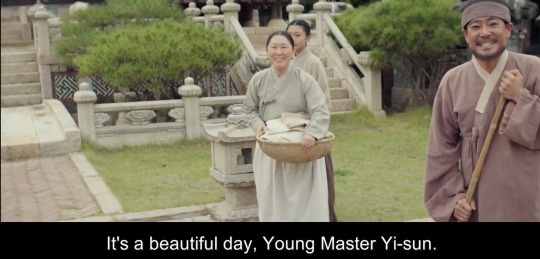
Before Gu Won was a mean bankrupt vampire in the the present, he was a kind man who was well-loved by his servants in the past. Gu Won treated them with respect and as equals. This type of behavior would've been viewed by many of his social class as unusual and unconventional. In the hierarchical society of the time, where nobility often maintained a distinct separation from their servants, Gu Won's compassionate and egalitarian approach set him apart. His genuine care for those around him challenged societal norms, earning him both admiration and, inevitably, disapproval from those who clung to the traditional expectations of class distinction.
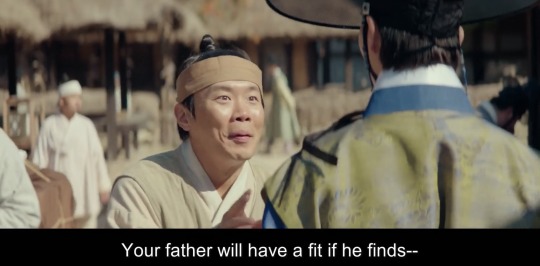
One such person who would've greatly disapproved of Gu Won's actions was his father. Judging from the flashbacks, it seemed Gu Won's father was a strict individual devoted to tradition, adherence to societal rules, and maintaining an image of wealth and power. In contrast, Gu Won disregarded these conventions, prioritizing modernity and challenging norms, a stark departure from his father's values. Therefore, Gu Won's father would've viewed Gu Won as a rebel and a devil similar to how Madam Ju viewed Seok Min. Unlike Seok Min, however, Gu Won was inherently a good person. Side note, I think it was funny that in the past, Gu Won was all about being modern, while in the present, he's all about tradition haha. How the times have changed!
Being a hedonistic individual, Gu Won would have been a frequent visitor to local kisaeng houses, and this is where I believe he initially encountered Do Hee and God. My bet is that God may have been employed as either the owner or a waitress here. As we know, God tends to hang around places with casino games, and kisaeng houses often had various gambling games.
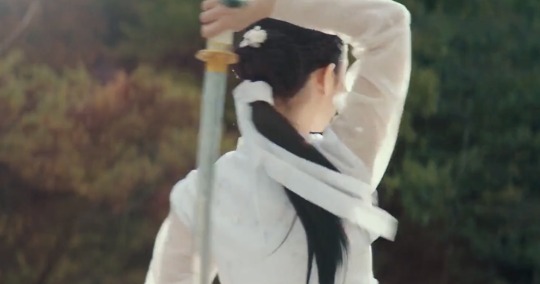
In the past, Do Hee was the antithesis of her present self. Unlike the present Do Hee, who held no belief in God and perceived her life as modern warfare, the Do Hee of the past was deeply religious and traditional. Similar to Sonia in "Crime and Punishment", Do Hee worked as a kisaeng to support her family. Her family's financial status was probably in shambles due to her father's gambling problems and alcoholism. Despite his vices, I don't think Do Hee's father was abusive like Ga Yeong's father in the present. I think he was more like Sonia's father, where even though he was a gambler and drunkard, he never mistreated or abused Do Hee.
Much like Sonia, Do Hee was a devout Catholic. However, in contrast to Sonia, Do Hee couldn't openly practice her faith. This was because during the Joseon dynasty, the predominant religion was Confucianism. Those of the Confucius faith viewed the rise of Catholicism as a major threat to their current belief system. Therefore, many Catholics faced persecution during the Joseon dynasty.
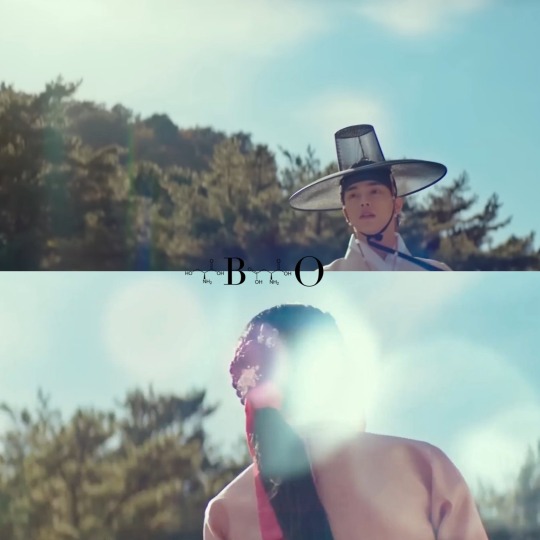
Despite coming from two different worlds (rich vs poor), Gu Won and Do Hee connected because they were seen as oddballs and outcasts in their own social classes. Gu Won, a nobleman who treated his servants as equals found common ground with Do Hee, a religious prostitute. These two odd birds were equally matched in every respect (odd and even get it? 1+1=2), creating a connection that transcended societal norms--they were, essentially, each other's soulmates. Their only "crime" was being born in the wrong era. Their love wasn't destined to flourish during the Joseon Dynasty. Instead, it was meant to thrive in the more modern times, like the present. If only these two had a time machine to fast forward to the future. Oh right...they did have a time machine and it was called God haha.
In Ep 9, God said to Gu Won, "Some call me time". Gu Won and Do Hee had the favor of God and time on their side. While God couldn't fast-forward time in the conventional sense (i.e give them a time machine or snap her fingers to transport them to the future), she could fast-forward time in the sense that she could make one lover immortal, freezing them in time, while she reincarnated the other lover at the right time so they could meet.
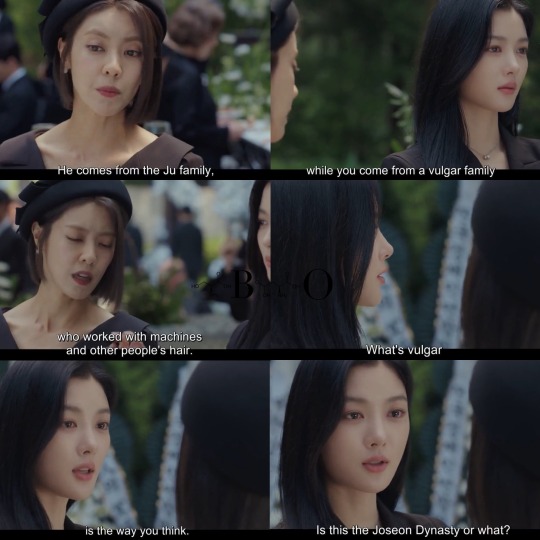
Just as in the present, Gu Won and Do Hee in the past also had to deal with people who were trying to sabotage their relationship. Much like their present-day counterparts, Ga Yeong and Seok Hoon of the past were among those who sought to break up Gu Won and Do Hee for their own selfish gains. Just remember what Gu Won said in Ep 1, "Evil stems from human desires". It's the desires of these two that contributed to the tragic fates of Gu Won and Do Hee in the past.
In the past, Gu Won's father had likely chosen Ga Yeong as a bride for Gu Won instead of Do Hee. Unlike her life now, past Ga Yeong was from an affluent and influential family, making her an ideal match by Joseon's standards with her beauty, wealth, and power. What remained unchanged from the past to the present is that Ga Yeong still had a bad personality and was just as obsessed with Gu Won in the past as she was in the present.
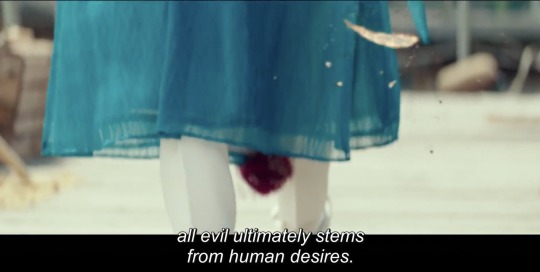
As for Seok Hoon, being a Ju in the past, he likely still enjoyed wealth, but instead of being the humble and kind person we know him to be today (I still have my doubts btw), he was a greedy and power-hungry Ju.
If we go with my theory that Gu Won was a Ju, one might ask, what was the relationship between him and Seok Hoon in the past? I think they were brothers--Gu Won, the lazy older brother set to take over the Ju household, and Seok Hoon, the younger, ambitious brother. Seok Hoon was probably jealous of Gu Won because Gu Won seemingly had everything handed to him on a silver platter without much effort or desire (maybe they were like Cain and Abel?). Side note, I'm going to laugh if it turns out Seok Hoon killed Gu Won with a rock because that's what Cain did to Abel.
Another possibility is that Gu Won and Seok Hoon were brothers who found themselves in love with the same woman. Seok Hoon got butt hurt because Do Hee chose Gu Won over him so he decided to destroy them both. If he couldn't get love, he would seek power (hmmmm sounds similar to the present haha).
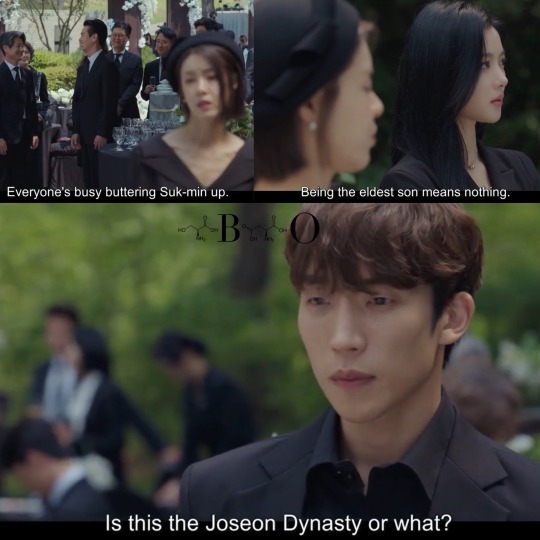
Gu Won and Do Hee were just trying to be in their own little love nest but societal norms and people's desires got in the way. Similar to the present, Ga Yeong and Seok Hoon teamed up to exploit the lovebirds' vulnerabilities. Ga Yeong coveted Gu Won's heart while Seok Hoon sought the position of heir to the Ju household. Gu Won's vulnerability was Do Hee, and Do Hee's Achilles' heel was her Catholic faith. Team Judas decided to use the lovebirds' secrets to fulfill their greatest desires. As we've seen in the show, revealing people's deepest secrets can be an effective means to achieve one's goals.
Seok Hoon found out Gu Won was in love with Do Hee and wanted to marry her which again was a no-no because noblemen couldn't marry those from lower social classes than them. And Ga Gyeong, she discovered Do Hee was a Catholic by paying someone off.
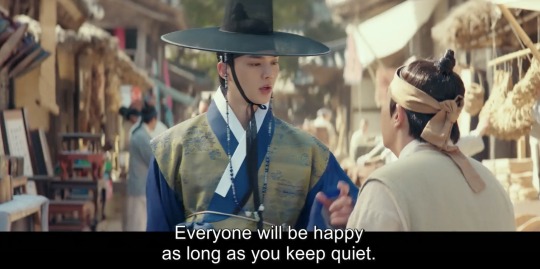
Seok Hoon and Ga Yeong probably informed Gu Won's father about Gu Won and Do Hee's secret relationship. Gu Won's father couldn't have Gu Won tarnished the family reputation by being involved with a Catholic kisaeng so he sought to eliminate Do Hee.
On the day they died, Gu Won and Do Hee were doing normal couple things like walking on the beach. However, their blissful day turned into a nightmare as they found themselves being chased by the men Gu Won's father had hired to kill Do Hee. They eventually ended up being cornered on a cliff. Subsequently, they fell into the ocean similar to the events of Ep 1. The only difference between the events of Ep 1 and the past was that Gu Won was a mortal man who didn't have the powers to save him and Do Hee.
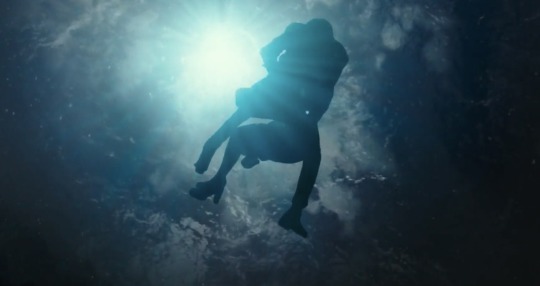
After this death, Gu Won woke up in Hell. Why? Because he was rich and lazy. Remember what Do Hee said in Ep 1- the rich and those who don't believe in God go to Hell. You might wonder why being rich automatically lands you in Hell? It's because those who are rich usually acquire their monetary wealth through unethical and immoral means. In turn, their actions eat away at their soul until they have none. Therefore, those who don't have souls go to Hell. While Gu Won might not have been directly involved in shady dealings, he still lived off his family's wealth which may have been obtained through dishonest means. Additionally, Gu Won's slothful nature and lack of diligent work might have been another factor contributing to his descent into Hell. As for Gu Won's religious beliefs, I don't think he had one. However, maybe he did in the end because of Do Hee.
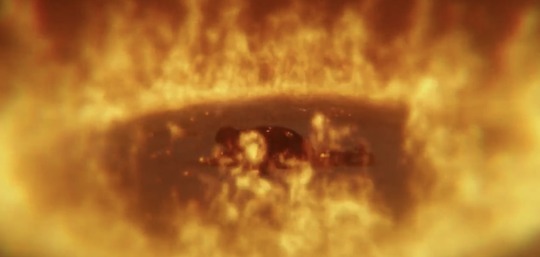
So, what about Do Hee then? Where did she end up? She probably found herself in Heaven because she was poor and believed in God. This created the same issue for the lovers in death as they had in life-- being in separate worlds. Just like in life, they weren't able to be together even in death. Do Hee ended up wishing she could be where Gu Won was, which in this case was Hell. Do Hee sacrifice her soul/Heaven for Hell.
Do Hee's sacrificial act probably deeply touched God and prompted her to offer the two lovers a once-in-a-lifetime job...become demons and earn your souls back. However, I think Gu Won wouldn't have wanted Do Hee to become a monster, so he negotiated with God that he would become a monster for the both of them. Meaning he would work as a demon to earn back both of their souls and spare Do Hee the life of working as a demon.
By doing so, Gu Won would be able to save them from Hell and live a happy life in a place between Heaven and Hell, which was Earth. However, it wouldn't be all rainbows and unicorns though. Without any soul money to bargain with, Gu Won had to give up the only bargaining chip he had--his human memories. With the last vestige of his humanity gone, God imbued him with powers so that he could work towards saving his and Do Hee's souls from Hell so that they could have a better and brighter tomorrow.
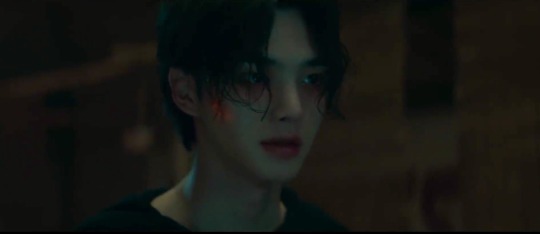
Alternatively, I can envision the events unfolding similarly to those in Episode 1 with minor differences. Gu Won regained consciousness in the waters, and instead of turning back to try and save Do Hee, he swam up and left her behind. Once ashore, he felt immense guilt about his actions and saw himself as a monster and a poison to the very woman he claimed to have loved. Like the previous theory, God appeared and offered him a deal that would allow him to redeem himself. Though I find this theory plausible, I believe the other one is more likely to occur.
Section 3: More On The Contract with God
Section 3.1 Soul Money
Now let's take a deeper dive into the specifics of Gu Won's once-in-a-lifetime job! I'll start this section off with an analogy. God is the owner of Jesus Corp. Bank where money is stored. When I say money, I'm not talking about dollar bills, I'm talking about souls or as I like to call it, "soul money".
Gu Won is working at Jesus Corp. Bank as a loan officer because he's spiritually bankrupt as in he has 0 Soul Wons (SW) in his soul bank account. As with any job, Gu Won gets paid except he doesn't get paid with earthly money, he earns soul money. To buy a soul, you have to have 1000 SW (1000 SW=1000 W). For every year that he works, he earns 10 SW or 10 won (I will go over how I came up with these calculations further down). This may seem like a lousy pay, but when it comes to reclaiming your soul, sacrifices must be made. It really is a small price to pay hahaha.
Anyways, if it costs 1000 won (1000 SW) for a soul, how many years does Gu Won have to work to earn 1000 won at a pay rate of 10 won per year? 100 years. You're probably thinking where are you getting these values from and how the math ain't mathing, but don't worry just keep reading!
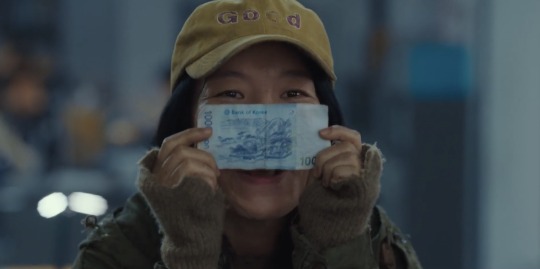
Let's first start out with how I deduced a soul is worth 1000 won. I kept thinking about the bill God was holding which was 1000 won. 1000 is "cheon" which means Heaven in Korean. It dawned on me that souls have the same value as Heaven, meaning souls = 1000 won and Heaven = 1000 won. You have to have a soul to go to Heaven and those who end up in Hell have no soul.
After this, I started to investigate the clocks. I discovered the clocks in Gu Won's place and on the promotional posters were decimal clocks, commonly used by those in accounting for payroll and hourly billing. If you're curious about what these clocks are, just Google it. I'm not going to spend more time writing than I have to
Ok so now you're wondering how I came up with 10 won/year. Let's consider how Gu Won's 10th name would be Sip Won or 10 Won. Then consider how there are a total of 10 hours on the clocks in Gu Won's place which are representative of 10 years. Put those things together! Each "hour" on the clock is 1 year and each time the hour hand moves from 1 hour to the next, it's 10 won. Therefore, it's 10 won/year.

To help you understand this, I have created a figure below that includes the decimal clocks seen in Gu Won's place (orange), the promotional poster (green), and a 12-hour clock (red). It should be noted that both the orange clock and green clock have a total of 10 hours, it's just that they start at different numbers. The clocks (orange) seen in Gu Won's place are a countdown until the people go to Hell while Gu Won's clock (green) is a countdown until he gets his soul and Heaven.
Now, let's revisit the deal Gu Won offers people. The term is that you get 10 years of Heaven for selling your soul (keep in mind you don't get all of Heaven, you only get 10 years of Heaven). Mathematically calculate how much 10 years of Heaven is worth to see if it's really an equal exchange. Multiply the rate (10 won/year) by the number of years which is 10 years and you would get what? 100 won. That's how much 10 years of Heaven is worth...100 won. You might be thinking now that it wasn't an equal exchange at all, right? Depends on how you look at it! One way to look at it is that you just got cheated because you sold your soul valued at 1000 won for only 100 won of Heaven.
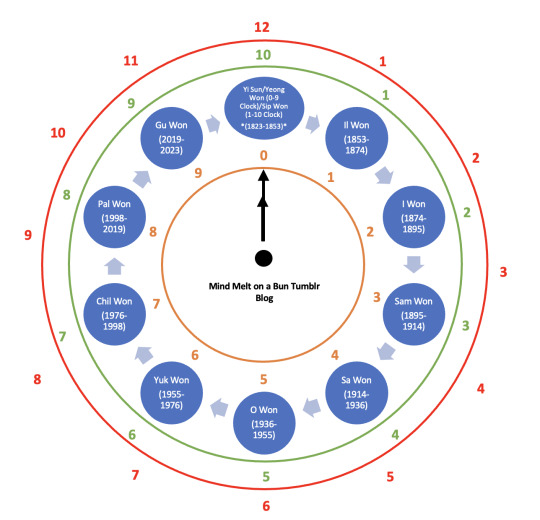
On the other hand, one could view it as a fair exchange because these people (except for the mother and daughter) were trying to cheat the system. Meaning they didn't want to work hard to acquire their Heaven, they would rather acquire it through dishonest means (i.e signing the contract). In the end, the cheater got cheated so it's fair haha!
The thing is every time one engaged in shady crap, it eats at your soul until you're spiritually bankrupt. In this context, you've already sold your soul to the devil. You didn't need to sign a contract with the Devil to go to Hell, you would've ended up there sooner or later because you had engaged in deceitful acts to acquire your greatest desires. One could then see Gu Won was doing the world a huge favor by signing contracts with these cheaters because he removed these bad eggs from the living world more quickly!
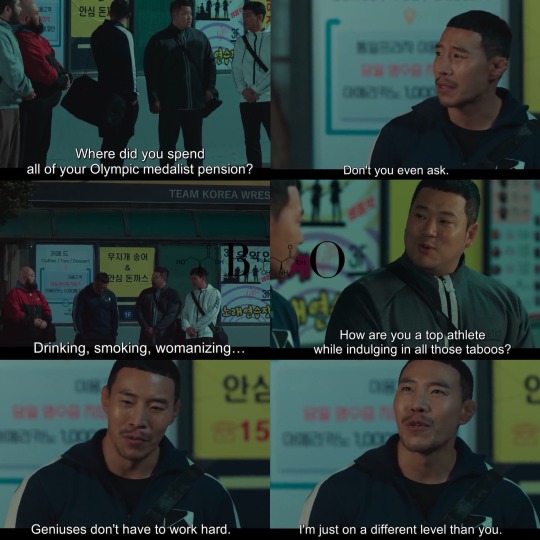
Some might wonder, can you be a rich person while living and not end up in Hell after? Yes, you can. How? By acquiring your wealth through honest means, following the rules, and engaging in acts of charity. In this way, you would not only be materialistically rich but spiritually rich as well.
The moral lesson in MD is to live a righteous life and work hard for the things you want in life. If you decide to engage in dishonest behavior (i.e cheating), just know you may not have to pay for it while you're living, but you'll eventually have to pay for it in the afterlife.
Section 3.2 Why Did Gu Won Have to Work for 200 Years?
Now let's consider what would happen if say were in Hell like Gu Won was, but wanted Heaven? What can you do if you are spiritually bankrupt? You got to WORK BITCHHHH to earn back your soul. Shit.... that's hard for a sloth who had never worked a day in their life...cough...cough Gu Won.
Why did Gu Won have to work for 200 years? It's because he not only had to buy back his soul but he also had to buy back Do Hee's soul too. Let's do some math....if a soul costs 1000 won and you make 10 won/year, how many years would you have to work? 100 years (10x=1000; x = 100). Again, because he had to get Do Hee's soul out of Hell, he had to work an extra 100 years.
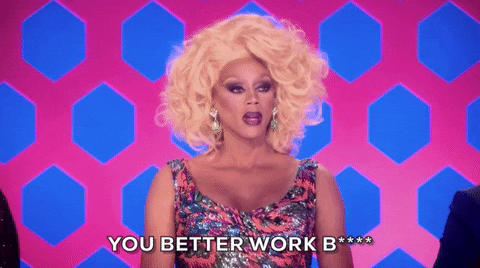
I believe in the first 100 years on the job, Gu Won earned back Do Hee's soul which freed it from Hell. In turn, this allowed her to become reincarnated while Gu Won was still stuck working towards getting his soul back.
Now, you might be wondering if Gu Won obtained more deals, wouldn't he earn back his soul faster? Nope. It doesn't matter how many contracts he signed, he still got paid the same amount every year. What mattered was that he worked period. And this is why Gu Won didn't know how many contracts he had to sign to prevent spontaneous combustion haha. He didn't get that all he had to do was work. To earn back your soul, you have to be diligent, not take any shortcuts, and follow the rules. As a worker at Jesus Corp bank, if you're lazy for one second, you spontaneously combust haha. If you cheat and break rules, same thing haha.
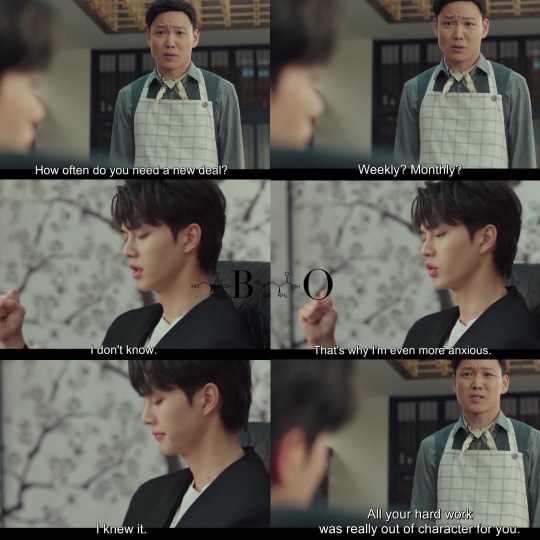
One might think Gu Won would be able to get out of his job as a demon if he became human right? Not quite. I was wrong in my previous theory when I said after he became human, he would no longer face the threat of spontaneous combustion. He still faced the threat because he did not fulfill his end of the contract with God. Gu Won agreed to work as a demon for 200 years in exchange for his and Do Hee's souls. The keywords are "demon" and "200 years".
The moment he became fully human, it was like he breached his contract with God. Hence this was why he still faced the threat of spontaneous combustion even after he became a human. He was close to hitting 200 years exactly but you know some things got in the way haha. God was basically dangling a bone (i.e Do Hee) in front of Gu Won to motivate him to become a guardian demon faster. Oh and the last piece of his soul is in Do Hee!
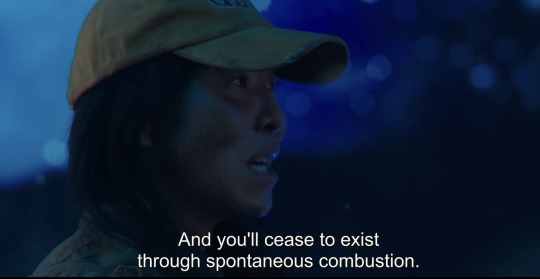
So how much longer does Gu Won have to work for God? ~1.2 years. If you look at the clock at the beginning of Ep 9, you'll see the hour hand is pointing at ~8.80 which equates to ~1.2 years left haha. This is why later in the ep, the writer hints at this by having Gu Won say to Do Hee, "Otherwise, I might have to wait another year." So yeah, if you don't work, you die and if you break the contract, you die hahaha. I think Gu Won will continue to work for God even after his contract with her ends.
It was funny Gu Won was trying to blame God for everything. I was like boy you're the one that signed the damn contract haha. You made that decision and now you have to face the consequences of your actions haha. End of the day, God was just trying to help these two lovebirds out and to get Gu Won to grow the fuck up and know the true meaning of hard work haha. Oh, and she was also trying to get him to forgive himself for what happened in the past.
Something Punny
Let's take a quick break with something funny before we head into the next section! So what do you get when you cross a line? Read that really slowly and think about it for a minute.....YOU GET A CROSS HAHAHAHAHAHA. This writer though hahahahahaha. On a serious note, it's because Gu Won and Ga Yeong crossed the line that things have been going in a more positive direction.
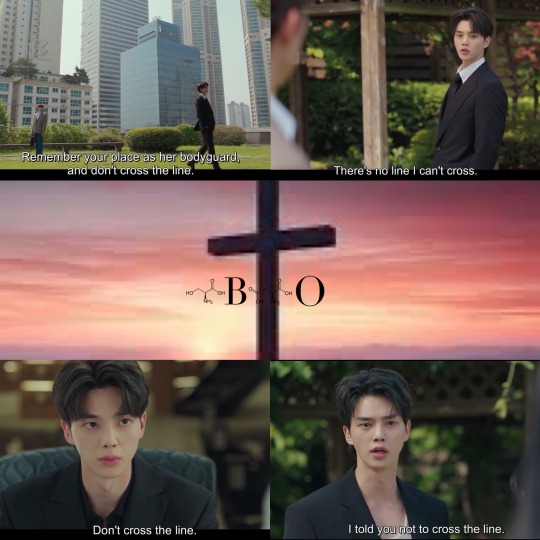
Section 4: The Mechanics of The Tattoo Transfer
Before going into how everyone's choices influenced Gu Won and Do Hee's fate, let's first explore the mechanics of the tattoo transfer. I have to say, I'll never trust anything Park Bok Gyu says ever again haha. Because I believed in his little hypothesis, my theory was completely wrong haha.
The essential conditions for the tattoo transfer are as follows: 1) A full moon must be present, 2) Gu Won and Do Hee must face a life-and-death situation, 3) The person without the tattoo must genuinely desire to save the person with the tattoo, and 4) The person with the tattoo must be near death or on the brink of it. The location and timing of the ritual are inconsequential. As long as the specified conditions are met, the transfer can take place!
Section 5: Fate is a Web Woven By a Myriad of Choices
Section 5.1 Free Will Vs. Fate
Ok now let's talk about the great debate...Free Will vs Fate. Did anyone catch the writer's stance on this debate? It was conveyed in Ep 1 and Ep 10! The writer believes these two concepts can coexist with one another. This belief is known as "compatibilism"!
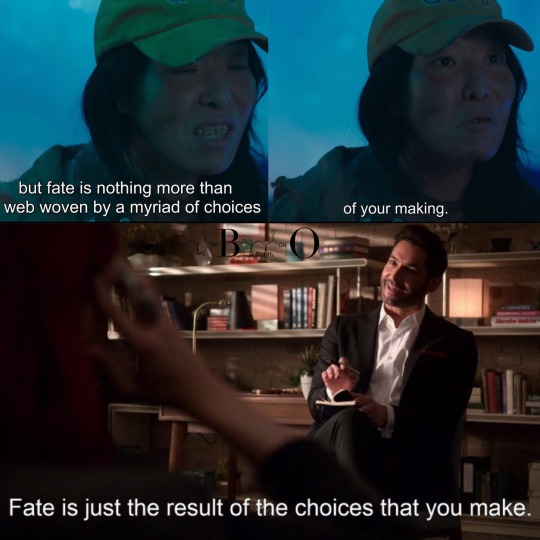
What is compatibilism? It's the belief that while external forces, such as God, upbringing, society, and environment, may play a role in shaping our fate, the ultimate responsibility for our decisions lies with us as individuals. All actions, whether deemed as good or evil, are fundamentally driven by the choices we make. These choices, in turn, are influenced by our internal desires, which can be shaped by external forces. In this perspective, we are active agents, empowered to play a significant role in shaping our own fates through the conscious decisions we make.
God can influence our choices, but the crux of the matter remains we are free to choose whether or not to align our choices with divine guidance. As my bf noted, "Those who don't obey God or adhere to their plans tend to find things don't work out for them. This underscores the idea that aligning our choices with divine guidance can lead to a more favorable fate.

In the show, Do Hee's decision to save Gu Won and vice versa, who had the cross tattoo, can be seen as a complex interplay between free will, determinism, and compatibilism. Her desire to save him reflects an exercise of personal agency, emphasizing the role of free will in her choice. Simultaneously, the symbolism of the cross introduces a deterministic element, suggesting an alignment with a divine plan. This dynamic highlights the compatibility between personal choice (free will) and external influences (determinism/fate), echoing the principles of compatibilism.
Simply put, God can present you with a plan, and you can choose to follow that plan or not. It's your decision. If you choose to follow the plan and things don't work out then don't go around blaming God because you're the one who made the decision, you're the one who's responsible. Nevertheless, the underlying belief is that adhering to God's plan can lead to favorable outcomes.
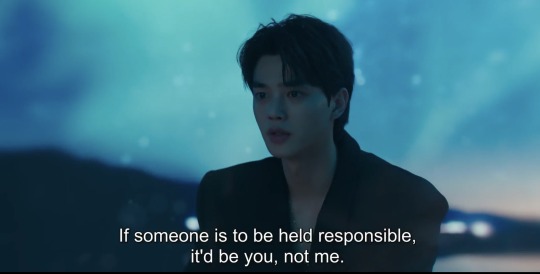
The ending scenes of Episode 10 exemplify the convergence of everyone choices influencing the fate of Gu Won and Do Hee. Let's start with the puppet master – God. If God hadn't conveyed to Gu Won that Do Hee needed to die to regain his power, what would have happened? Gu Won and Do Hee's plan would likely have failed, leading to Gu Won's demise. However, God disclosed this crucial piece of information to set in motion a chain of events that ultimately resulted in a positive outcome. I aslo see this as one of God's tests to determine if Gu Won was ready to have the training wheels taken off haha.
Gu Won had the option not to disclose to Park Bok Gyu what God had communicated, but he opted otherwise. As a result, Gu Won's actions led to Park Bok Gyu expressing his concerns about the necessity of Do Hee's death, which Ga Yeong overheard. This, in turn, led to Ga Yeong providing poison to Do Hee, a necessary step in fulfilling God's plan for Gu Won to regain his powers.
You see, God does know everything despite her saying otherwise (in this show, God does lie haha). She knows all the possible outcomes there are and intervenes strategically to ensure things align with her desires. Thank God, she's Team Dowon haha!
Section 5.2 Team Judas
I believe Ga Yeong's decision to disclose Gu Won's secret to Seok Min will have broader consequences than she anticipated. In the preview for Ep 11, we see Seok Hoon joining forces with Seok Min, with the motive behind Seok Hoon's decision left unrevealed. I can only speculate and say that Seok Hoon perceives joining forces with Seok Min as the lesser of two evils. Thanks to Ga Yeong, Seok Hoon views Gu Won as the embodiment of evil that needs to be exposed and crucified, and the only person with the necessary "power" for such an undertaking is Seok Min. My question is, is Seok Hoon ready to sell his soul to the Devil? In all honesty, Seok Hoon is just doing this because he wants Do Hee to be with him and not Gu Won.
I guess Seok Hoon and Seok Min will devise a plan to expose Gu Won as a demon/devil. I have no clue how exactly they're supposed to do that given when someone tries to film Gu Won doing magic, the camera cuts out. The only other way I could see them able to accomplish this goal is by hiring someone to stab Gu Won in public so people can see Gu Won can instantly heal. Or if they want to do it "The Bodyguard" style, they would hire someone to shoot Do Hee, and then Gu Won would jump in front to protect her which again would expose him as a supernatural being since he would instantly heal. In either case, People would then see Gu Won as a monster. They would try to hunt him down like the Beast from Beauty and the Beast and crucify him like Jesus. Then again this plan might fail because Gu Won being a human now might not be able to instantly heal anymore.
Another theory is that Seok Hoon is teaming up with Seok Min to take him down. Maybe Seok Hoon realized after the incident at the gas station that Seok Min was behind everything. Seok Hoon will go undercover to dig up evidence of Seok Min's crimes. This could be his redemption arc maybe. Again, I still have my doubts that Seok Hoon is actually a good guy, but I could definitely be wrong!
Section 5.3 Do Gyeong
I might be in the minority, but I genuinely hope Do Gyeong survived the car crash so that he can testify against his father. While I understand Do Gyeong crashed his car into the gas station because he saw death as the only way to escape his father's abuse, it was still wrong. I also think he did this as a way to get revenge on his father. By crashing his car into the gas station, the police would start investigating his father. In turn, this could lead them to discover Seok Min as the real culprit behind everything. Additionally, I think Do Gyeong was the one who stuck a knife into Kwang Chul's chest after he was burnt like a crispy duck. Do Gyeong probably did this for the same reason as I mentioned above...to lead cops and Gu Won to his father.
Section 6: Madam Ju, Murder of Do Hee's Parents, and Seok Min
I don't know if anyone has noticed, but Madam Ju wasn't in Eps 9-10. This was odd given that in previous eps, she would always make some sort of appearance. I posed a question in my previous posts asking if Madam Ju was a figment of Do Hee's imagination or a real spirit/ghost. I've concluded Madam Ju is not just a figment of Do Hee's imagination. I think she's a real spirit/ghost.
Going back to Ep 1, Do Hee wished on her 28th (8+2=10 haha) birthday that Madam Ju would be around for a very long time to continue stabbing her in the back. God granted Do Hee's wish. God probably allowed Madam Ju to come back and talk to Do Hee as a spirit to help her heal. However, I think God restricts what Madam Ju can tell Do Hee. I feel like we'll see Madam Ju again after Do Hee discovers her dark secret.
In regards to the deaths of Do Hee's parents, I don't think Madam Ju killed them. I think it may have been an accident, but Madam Ju still blamed herself for it. Maybe what happened was that Madam Ju committed a crime out of greed like cutting costs on the production of electronic products or sabotaging a product to get insurance money and Do Hee's father found out about it. Subsequently, he went to investigate it/fix it and that's when the explosion happened.
Interestingly in Ep 10, we saw Seok Min with a tape recorder on the day Do Hee arrived at the Ju household. Could it be that Seok Min recorded his mother confessing her dirty secret and guilt for the deaths of Do Hee's parents? This might explain why Seok Min said, "So it's you, mother's way out." Maybe Seok Min was planning on using the recording to later blackmail her so he could get the chairman position.
Another theory I have is that Do Hee's father had discovered what Madam Ju was trying to cover up and then Seok Min found out about it. Seok Min then took the initiative to cover up his mother's dirty secret by getting rid of the only person who knew about it by planting a bomb in their car. Seok Min probably did all of this because he thought it would "win" his mother's love and approval and that she wouldn't see him as a devil anymore. Additionally, he thought in his own twisted way that by doing this, he was protecting his mother. Maybe Seok Min's real desire was that he just wanted Madam Ju to love him.
When Seok Min discovered Madam Ju's Chief Financial Officer had uncovered her secret and contacted Do Hee about it, Seok Min once again, turned to murder to "protect" his mother. Instead of receiving gratitude for his actions, Madam Ju scolded him for them. This was the final straw that broke the camel's back. If Seok Min couldn't have love, he would seek power, even if it meant killing Madam Ju. This act is what essentially transformed him into the real devil demon.
I just had an interesting thought. Seok Min killed the very thing he loved to obtain power, mirroring what God implied Gu Won should do with Do Hee to regain his powers (anyone getting Thanos and Soul Stone vibes haha). Perhaps this is the real difference between Seok Min and Gu Won. Gu Won wasn't willing to sacrifice the one he loved for power. Instead, he was willing to sacrifice himself to save the one he loved, which transformed him into a guardian demon. Gu Won's prioritization of Do Hee's needs over his own enabled him to obtain real power.
Section 7: Guardian Demon
Do Hee was right when she said Gu Won would be reborn as a perfect demon hahaha.....guardian demon that is! He probably follow a path similar to Lucifer Morningstar from the show "Lucifer," transforming into a figure with a psychologist-like role, assisting others in finding redemption and embracing goodness haha.
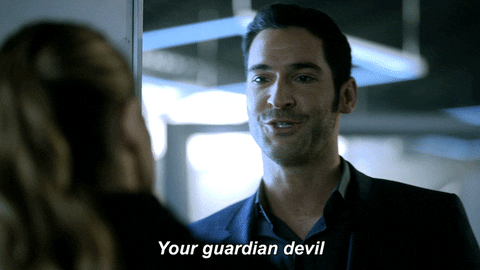
Section 7. 1 God Placed People From All Walks of Life In Gu Won's Path to Help Him Become His Best Self
Every person God strategically placed in Gu Won's path served a unique purpose, guiding him toward personal growth and offering them a chance at salvation. Take, for instance, the Wild Dogs. God orchestrated their encounter to provide Gu Won with an opportunity to rehabilitate them, transforming them into a force for good rather than evil. Similarly, the girl and her mother were placed in Gu Won's path so that he could learn guilt and compassion. Additionally, they were placed in his path so he could use his guardian demon powers to heal the girl without damning her mother to Hell!
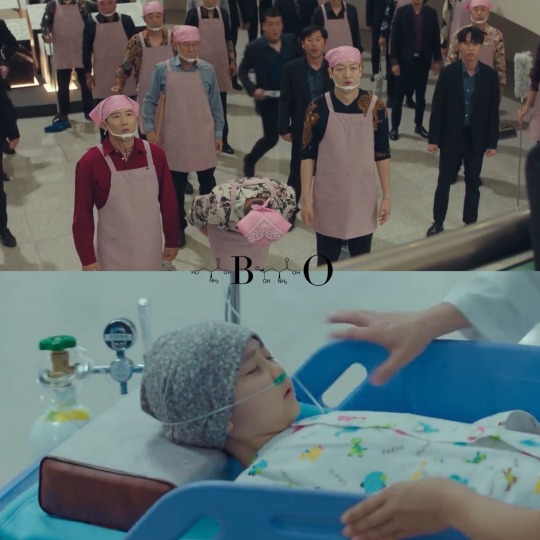
In the case of Ga Yeong and Seok Min, I think God placed them in Gu Won's path so he can learn to forgive those who basically killed him in the past. Forgiving those whose choices once led to one's death is a challenge, but it's a necessary step in Gu Won's journey toward becoming a guardian demon.
Simultaneously, God granted Ga Yeong and Seok Min a second chance at redemption for their past actions. Witnessing Gu Won and Do Hee's genuine love for each other might be the very thing that contributes to the healing of their dark hearts, leading them to realize that deceit and manipulation should not be employed to obtain love. Quite frankly, they both need to learn to let go and move on haha.
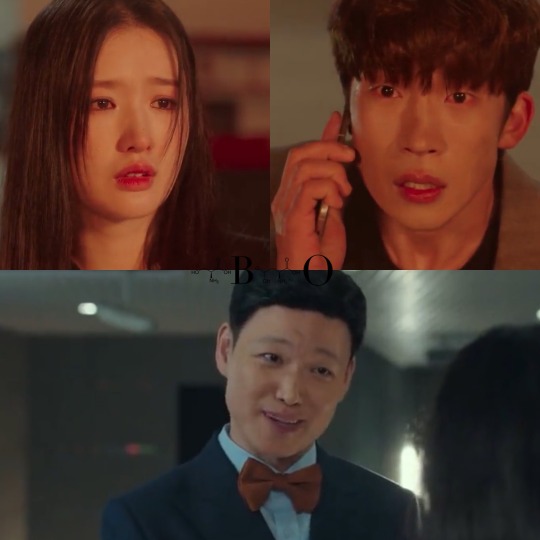
As for Park Bok Gyu, God strategically placed him in Gu Won's life to be a positive influence, reminding Gu Won of his humanity and encouraging him to embrace his role as a guardian demon. In return, God restored Park Bok Gyu's past memories, preventing him from inadvertently signing another contract and facing a second stint in Hell. It's a fair exchange, highlighting God's generous repayment for those who serve her purpose. Random thought, is Secretary Shin like a real angel or something? Because "shin" in Korean does mean "god" haha.
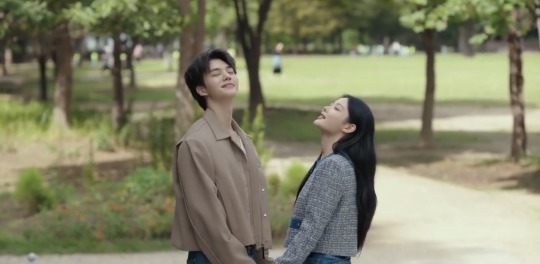
Last but certainly not least, Do Hee. God placed her in Gu Won's path to assist him in confronting his inner demons, particularly the guilt he harbors for failing to protect her in their past lives. Forgiving oneself is one of the most challenging feats, and Do Hee is poised to help Gu Won realize that the tragic events of the past were not his fault. This, perhaps, stands as one of the final steps before Gu Won can fully embrace his role as a guardian demon.
God also put Do Hee on Gu Won's path so he can help Do Hee in her journey of self-forgiveness. Do Hee carried the burden of guilt for the deaths of her parents and Madam Ju, and God intended for Gu Won to be a guiding light in helping her forgive herself. Moreover, God orchestrated their meeting to help Do Hee overcome her lingering fears, including her aversion to water (in Ep 9 she didn't want to get on the ferry haha). I think her fear of water stemmed from the traumatic events of their past lives, where she and Gu Won met their demise in the ocean.
Section 7.2 No More Following The Rules in The Demon Book
In my last post, I predicted Gu Won would break one of the rules in the demon book to protect Do Hee and that's exactly what happened in Ep 10! Can you guess which rule he broke? It was the rule that stated, "You can't bring back the dead". With the training wheels off, Gu Won could now bring back the dead and that's how Do Hee was alive again and fully healed. You're probably like wait why didn't Gu Won spontaneously combust? Because he became a guardian demon!
You see, the rules in the demon book only applied to devil demons, not guardian demons. What does this mean? It means Gu Won could now do all the things the rule book said devil demons couldn't do (review my previous post for the rules). According to Kwang Chul, humans were greater than the devil or God because they could be anything. Be it the devil, god, or something much greater. In Gu Won's case, he became something much greater. He became a mutant.... a mortal human with demon powers just like I previously said.
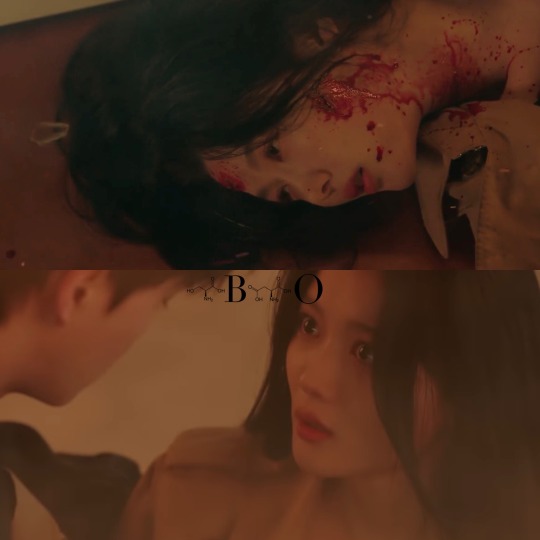
Here comes that quote again, "With great powers come great responsibilities." God couldn't make Gu Won a guardian demon right off the bat. He had to go through a bunch of trials and tribulations beforehand so he could learn to use those powers responsibly. I mean, can you imagine if God gave Gu Won those God-like powers with no rules back when he was a spoiled lazy rich boy during Joseon? The world would be destroyed as we know it!
However, it's not over yet people! Remember Gu Won still has 1.2 years left of work in his contract with God! If he doesn't finish up that contract, he can still spontaneously combust regardless if he's a guardian demon or not! Also, Gu Won can kill now which is scary! If I were Seok Min, I would be shaking in my boots right now. Madam Ju did say Seok Min would have to pay for his sins sooner or later!
In the end, Gu Won won't be a man who couldn't have his cake and eat it too. He'll become a man who can have his cake and eat it too! He just has to learn to be a good hard-working boy like Pinocchio haha. If you work hard and live a righteous life, God rewards you with all of your heart's desires (The atheist in me wants to vomit... sorry haha).
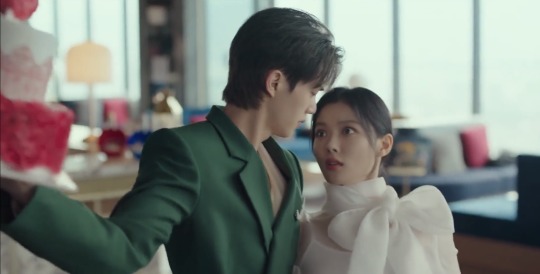
Section 8: Who Leaked Information About Gu Won and Do Hee's Whereabouts?
Everyone is thinking it's Secretary Shin who leaked the info about Gu Won and Do Hee's location. However, I think it was Do Gyeong. Seok Min probably had Kwang Chul place a tracker on Do Hee's car and when Do Gyeong hacked Seok Min's phone, he was able to obtain the tracking data. As for Team Judas, maybe Seok Hoon had placed a tracker in Do Hee's purse or put himself as a contact in her "Find My" app!
Section 9: Symbolism
Section 9.1 The Necklaces
In my first MD post, I highlighted the presence of both a silver and a gold necklace worn by Gu Won and Do Hee, and I've now unraveled the significance behind them: Gold symbolizes the Sun and Heaven, while Silver represents the Moon and Hell. Let's delve into Gu Won's necklaces first.
As mentioned previously, the silver cross necklace was speculated to either have belonged to Do Hee or been a gift from her to Gu Won. Notably, Gu Won's gold necklace doesn't feature a cross (unlike Do Hee's necklaces, which bear lover's knots). Why is this? Simply put, Gu Won didn't embrace faith in God and wasn't a Catholic. Gu Won wearing the silver necklace with the cross serves as a testament to Do Hee's steadfast faith, which played a pivotal role in saving them from eternal damnation in Hell. At the same time, when I think of silver, I think of Judas who betrayed Jesus for 30 silver coins, werewolves, and vampires haha.
The choice of material may also offer insights into Gu Won and Do Hee's past. Gold, being an expensive material, was a luxury afforded only by the wealthy, such as noblemen. In contrast, silver, being more affordable, aligns with the humbler status of individuals like kisaengs. Silver exudes humility akin to Do Hee, while gold mirrors the extravagant and ostentatious nature of Gu Won haha.
Now, turning to Do Hee's necklaces – they symbolize the enduring connection between her and Gu Won, transcending realms of Hell and Heaven forever and to infinity! Their love acts as a powerful force, enabling them to overcome any barriers to be reunited.
Section 9.2 Flowers
Section 9.2a Devil's Trumpets
Remember Devil's Trumpets from "The Glory" haha? Its scientific name is Datura stramonium, also known as devil's snare (any Harry Potter fans here? haha). This plant belongs to the nightshade family, a group where many members are poisonous (potatoes, eggplants, tomatoes, etc are part of this family, but they're not toxic). While Devil's Trumpets can be highly toxic, they can also possess medicinal properties and have been used to treat various illnesses. Occult practitioners sometimes consume this flower for visionary experiences.
In the story of Romeo and Juliet, the poison the star-crossed lovers consumed was from a member of the nightshade family called "Belladonna." Considering this, Ga Yeong's poison to Do Hee could have been either Devil's Trumpets or Belladonna. Additionally, the Devil's Trumpet might symbolize Gu Won, suggesting that despite the toxicity of his family (the Ju family), he is a benevolent person capable of healing rather than harming. He's an eggplant haha!
Section 9.2b Poppy
What do poppies symbolize? Death, dreams, and remembrance. It's fitting given in the Ep 11 preview, Gu Won will have a dream of his past life and remember shit. Who knows maybe we will finally get to see how he died? The poppy in his ear could also be a foreshadow that he will die again verrryyyy soon haha.
Section 9.3 Snakes
Christianity seems to have a knack for twisting once-positive symbols into something negative! Before snakes became synonymous with evil, the Devil, and Satan, they were revered as good spirits in Greek and Korean mythology
In Ancient Greece, snakes were often linked to Agathodaimon, a lesser deity meaning "good/noble spirit" (this is what Gu Won is; I bet the writer will mention this term haha). Agathodaemons were household gods and protectors of those who worshipped them. Representations of Agathodaimon featured snakes with a poppy flower (similar to Gu Won's in the EP 11 preview) and an ear of grain, symbolizing prosperity and fertility respectively. This deity was also portrayed as a man holding a cornucopia, akin to Thanksgiving traditions. Ancient Greeks would honor Agathodaimon with a few drops of wine after a meal.
In Greek myths, Agathodaimon was believed to be the spouse of Tyche (probably Do Hee), the goddess of fate and fortune (also known as Lady Fortuna or Lady Luck). In Egypt, Agathodaimon was associated with Osiris, the Lord of the Underworld, and Shai, the god of fate. Basically, you would want Agathodaimon because he would bring you good luck, wealth, and protection.
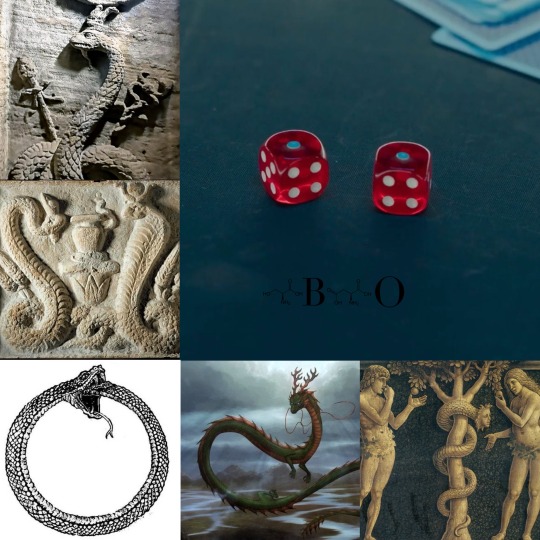
In Korean mythology, snakes were also viewed as creatures of good luck. For example, in Korean myths, the Imoogi was one big fat snake that brought good luck and fertility to crops. However, it was believed if you ever prevented an Imoogi from ascending to the Heavens, bad shit would happen like plagues, typhoons, infertile land, and famine. The overall message is don't kill snakes because bad shit will happen. I'm suddenly getting a bad feeling Gu Won is going to get killed and a natural disaster will occur haha. For those wanting to learn more about Imoogis, you can click on the link below or Google it.
So y'all are probably wondering why the hell i'm telling you all of this? It's because in Ep 10, Gu Won rolled what is known as "snake eyes". The reason this roll is called "snake eyes" is because the 1's resemble the two pips to the eyes of a snake. In craps, this roll can either mean you're really lucky or unlucky, representing an odd phenomenon. For example, when you roll snake eyes on the initial roll, you have to roll it again on the next roll to win the round. However, the probability of rolling "snake eyes" is very low (2.78%).
Another thing to mention is how 2 odd numbers can equal an even number where 1+1=2. You could also view Gu Won's roll as a good omen because it's 1...1....11 which is considered a lucky number! Our little lovers are snakes who are bringers of luck and fertility haha.
FYI, one of God's rolls was a "push" or "standoff" roll which are two 6's. Like snake eyes, this roll has the same low probability of 2.78%. The funny thing about Gu Won's roll and God's roll is that Gu Won's roll is the lowest value you can get which is 2 and God's roll is the highest value you can get which is 12.
Section 10: OTHER RANDOM THOUGHTS
I have none. I'm brain-dead from researching, thinking of stuff, and editing this monster of a post. K byeeee
#my demon#there are probably grammatical mistakes#song kang#kim yoojung#do dohee#jeong gu won#gu won#devil#ga Yeong#do hee#why did i write so much#my brain hurts now#kim you jung#long post#long reads#i hate plagiarists#daemon#seok hoon#the writer of this show is so religious hahaha
7 notes
·
View notes
Text
Dear Reader Analysis
This is my dear reader analysis because the mainstream gaylor one sucks ass.
What Dear Reader is About: her closeting during 1989 era and her parasocial relationship with her fans.
In no way shape or form is she advocating to let her stay in the closet, y'all have to purposely miss the rest of the context of the bridge that makes it clear she resents that part of her fame so much, but more on this later. let's start at verse one, which makes it obvious that the midnight this song is written about is one where she is recently single and after the phone call incident and she's lost her entire friend group.
We begin with the line, dear reader, which is setting the tone in a very authorial way. Taylor is speaking to her "readers," which I assume she means "listeners" here, but the fact that she uses a book term is so intriguing to me. Most taylor swift fans don't really do in-depth analysis of her lyrics, they really focus on the shallow aspects of her lyrics and who the music is inspired from that they really don't care about her lyricism. Listener would have been the more appropriate term here but the fact that she uses reader is making me think about this more. For now, I will say she is referring to her fans as readers- like she is writing us a letter almost.
Then she begins with the most important piece of advice she wants to give you, "if it feels like a trap, you're already in one." This to me is just wow, the imagery here is so beautiful and haunting. Let's ignore the hunting metaphor that she's used before during 1989 especially, and focus on just the literal interpretation for a second. Traps are used to capture a wild animal, and the very nature of a trap is designed to make you aware of its existence once you've already been captured. Now, let's remember that she used this reference of hunting before, most notably in: out of the woods, i know places because I will be focusing on 1989 era here since that's the most relevant place to start.
I have spoken before about the kingdom to woods metaphor of fame that taylor uses, but I am calling that back here to ask y'all to think about "out of the woods" as being "out of the public eye." I also want to call attention to the fact that all of i know places is taylor telling another "wild animal" that she knows how to side-step all of these traps- these hunters with cell phones. More on this later.
And here is where she gets crafty because instead of just giving us the pieces of advice in a more cohesive manner, like "if it feels like a trap, you're already in one. Get out your map, pick somewhere and just run. Burn all the files..." no, we get a "dear reader" in front of each one and this is SO SUBTLE but it basically gives the literary impression that she is talking to more than one person and tailoring the piece of advice to that individual "reader." When you start "dear X," you are addressing a new person. There is no need to keep calling attention to that same person in a song, unless your intent to signal that there is more than one person you're talking to.
Take "dear john," for example. She only refers to him in the chorus ONE time because that's all she needs in that particular song to address the person the song was about. But this song is about her fans and so she takes the time to address each one of her fans asking for advice in the entire song basically and this is why I think the distinction of "reader" is so important here because this scenario sounds like 1989 era where y'all would ask her for advice 24/7 on tumblr and instagram and other places and she would take the time to try and craft individual responses to each one of y'all who initiated the conversation.
However, the fact that she's referencing this particular situation is not good news for swifties but more on this later.
If you remove all the dear readers in the first verse, you basically get the same piece of advice given in different ways the entire time. All these lines translate to a 1 basic advice: if you feel like you're in trouble, you are and you should run ASAP. This to me feels reminiscent of the basic advice she would give her fans during 1989 because y'all would ask her things like she's your damn literal therapist and expect insightful, almost life-changing advice from her but if you guys really took a step back and objectively read through the screenshots of those DMs and messages, it's like really basic advice that you can find on google for free. I'm not saying this as a dig on taylor, i'm saying this as a dig on YOU guys because the way y'all expect her to be your actual therapist is kind of gross.
Then we get an internal monologue, which I know is an internal monologue because she doesn't use "Dear Reader," which means she doesn't want her fans to see this next piece of advice she gives them which is, "never take advice from someone who is falling apart (you should find another)," this to me just makes everything I've said about the 1989 DMs era that much more logical and evidence backed. The fact that she takes it another step farther and puts "you should find another" in the background of the background of her thoughts is so creatively cool and complex, I'm losing my shit over the writing on this song honestly.
the second verse to me is very interesting because she puts "you should find another" right after "you don't have to answer just cause they asked you," which is to me just so jam-packed with implications. I do think she is superficially referring to interview questions, but I also think she wrote this about how invasive her fans can be at times as well. I think in the second verse, we get more honest advice from taylor that is more varied but it honestly is more brutal to hear. The second verse to me, it really sounds like Taylor is saying that she regrets building her brand on being open and honest with people because when she "aims at the devil," she always misses and she's learned by now that you can't spill your secrets out for free all the time, it takes too much from you to be that honest on such a large scale with all her fans.
and here she completely loses the "dear reader," and just goes off on more brutal life advice that she's learned since the first verse time period (1989). I also think it's interesting that the bridge doesn't have any dear readers because here is where we get one of the clearest views into 1989 and her closeting specifically. It seems like she's grown tired of hiding her secrets, like she was in the second verse, and is drunk and rambling on about how queer she is in the bridge but in a very bitter and desperate way.
Okay, so we start with "never take advice from someone who's falling apart x2" which signals that this is her internal monologue from earlier, the one that she was having as her life was falling apart and her fans were asking for her advice 24/7 on tumblr and everyone was calling her a snake and a liar and a fraud. I think if you don't know that she was feeling like a fraud due to her being closeted, you probably will never understand how terrifying it must have been for her to be at the worst part of her anorexia and losing the love of her life due to her record label closeting her and having strangers call you a "liar" and a "fraud," when you were keeping these huge ass secrets this entire time. Like, the phone call drama was about so much more for her than just the phone call drama itself. Anyways, i'm getting on my soapbox lemme stop.
Then we get "so I wander through these nights," which is a clear reference to her going back to the past through recording her old music and revisiting all those old emotions from both the public tracks but also she has all those private tracks that we don't know all of them, but I imagine she probably cringes looking through some of the vault tracks she has because of the raw emotion that I get whenever I look back at something I wrote where I know what I was trying to get through at the time and being like "oh wow i was a sad bitch huh" and then the rest of the bridge kind of feels like that reminiscence on ur past.
"i prefer hiding in plain sight," my fourth drink in my mind, these desperate prayers of a cursed man. to me, this is the most tragic part of the whole song because we finally learn why she's been falling apart this entire song and it's so much bigger than any of the other life advice she's given us up until this point. It's raw, it's honest, it's so fucking sad, I don't understand how anyone thinks this is affirmation of Taylor WANTING to be closeted. She is literally calling herself a cursed man (the heteronormativity here, i could write a whole thesis about how brilliant it is and how relatable it is to see urself like this when ur still kind of homophobic towards urself yanno) and how she's desperately praying to "prefer hiding in plain sight," she is literally praying to her god to give her the strength to accept her fate in this glass closet when she wants to be loud and proud about her bisexuality instead.
Then we get, "spilling out to you for free, but darling please you wouldn't take my word for it if you knew who was talking," like this to me is the most queer thing she's written. That fear of your support network, or your friends, or in her case- her fans, rejecting her advice (and her as a person, if the advice is being used as a metaphor for her music as well) if they knew who was talking (the man cursed to hide in plain sight... it's so sad omg) because that's probably what her record label told her would happen if she ever tried to come out. She grew up during a time when gay marriage was illegal, and we're trying to go back there right now as a country, it's not like they're wrong about the homophobia she's going to get once she comes out honestly and that's the most heartbreaking part of this song. The acceptance that you're going to lose fans once you're honest about this but you've already lost your home and your friends and solitaire (fame) so really, who gives a fuck anymore about it. what's the point in keeping up with a lie when the lie didn't prevent you from "losing" it all anyways?
Also, i want to call your answer to the "for free" bit because if that's not a reference to new romantics and "the best people in life are free" idk what would be tbh. The fact that she's referring to herself as the "free" person here, it reflects the contrast between the beginning of the song and the end where she accepts that "I shine so bright" because she's come to love all the parts of herself by now, even the fame-seeking side of her that I assume she used to hate but has accepted it as part of her appeal. She's learned that she's valuable and people see that in her and that's why they ask her for advice but she's decided to be honest in her advice which is why the bridge is so brutal but the first and second verses are very "sanitized" because when she was giving advice during 1989, it wasn't real or genuine. She was just saying what people wanted to hear but she's done doing that and she wants to be honest about her struggles and her advice and she's learned that she wants only the people who accept her for ALL that she is to support her.
anyways, I love dear reader so much and this has taken me ages because i keep sobbing whenever i listen to the song and get sidetracked from the listening lol. I'm sure there's so much that I've missed but I was so tired of the "dear reader proves joe is a beard" takes that I just had to come in and give the correct take to the song, obviously.
23 notes
·
View notes
Text
My First Post.
About Me.
Welcome to the World of Words, Jose Guaido!
Hi there, friends who share my passion for language, learning, and art! As the curator of this virtual haven where ideas blossom, language becomes beautiful, and words come to life, my name is Jose Guaido.
A Little About Myself
I'm an enthusiastic writer who is looking to defend human rights and freedom capabilities, driven by the limitless potential that language presents. I have had a meandering trip exploring the fields of linguistics, literature, and expressiveness; my blog is a canvas on which I paint the hues of my linguistic palette.
The Significance of Words
In an information-rich society, words, in my opinion, can reshape viewpoints, ignite the imagination, and fill gaps. Here, we celebrate the enchantment that happens when words dance on the page, whether it's by examining the subtleties of language, discovering the glories of literature, or piecing together the concepts of provocative ideas.
This blog is a tapestry of my reflections, ideas, and explorations. Since we all realize that citizenship cannot become one if it is not united to complete plans of action that will ensure that our people and the entire region are governed by a voice of justice and freedom. From linguistic advice and literary analysis to thought-provoking discussions on a wide variety of topics, I invite you to join me on this intellectual journey. Expect a combination of the profound and the whimsical, the informative and the entertaining, as we navigate the vast landscape of human expression.
This is a community of similar individuals who value language's artistic quality, not simply my place. I invite you to express your ideas, participate in conversations, and let the power of language to unite us.
Together, let's set out on this language journey, where each post serves as a destination, each paragraph as a path, and each sentence as a step. I appreciate your participation in this trip.
Let us celebrate the power of words and freedom!
2 notes
·
View notes
Text
Miscellaneous Tag Game
thank you to @thesunlikehoney for tagging me.
A band you don’t like that many others do:
I really don't know. I don't particularly talk bout music to other people.
A childhood memory that you remember vividly:
Waking up to irrigation days was like Christmas to a little kid like me. One time, a small fish got swept into the flood.
Least favorite animal and why:
Orcas. I just don't like the violence they bring to the cetacea party.
Hot fandom take:
Aside from the Clones, I prefer Kaminoans over the Mandalorians or even the Jedi. I grew up on the Gulf of Mexico and on the TX-MX border. Because of that, I relate far more to an intersectional culture that is a regional mixed culture as well as a culturally intimate relationship with the ocean and its turbulent weather patterns.
I also just think they are weird and neat.
Do you wear any jewelry, if so, what’s your favorite piece:
I only wear jewelry for out-of-the-house fashion outfits.
A movie others liked but you didn’t:
The Last Kingdom.
Three things you love about yourself:
My writing, my literary analysis skills, and the fact that I hate myself enough to have parrots.
A place you hope to visit in the future and why:
Japan. Fashion trip.
An actor that gets on your nerves and why:
Actors don't really get on my nerves, but their fans sure do. I've had to say more major fans of Star Wars actors will get on my nerves one way or another.
Things you’re excited for in the nearby future?
Maybe finishing my big fic.
Least favorite ship in a fandom you’re in:
Cody*wan and Obi*kin. Sorry Obi-Wan, you strike out—the third one is also an Obi-Wan ship.
What’s the most toxic fandom you’ve been in?
Star Wars and Transformers.
List three things you find beautiful about life:
The ocean, fashion expression, and beautiful literary pose.
Any dreams for the future?
Maybe my pain going back into remission. I'd just like to get this one fic finished.
How are you really feeling today?
Physically in quite a bit of pain. But, I accomplished a writing goal.
I'm gonna blindly tag whoever wants to answer. It saves me from more typing.
2 notes
·
View notes
Note
Hi!! Your texas sun fic broke my heart into a million pieces and put it back together. I can't put into words how much certain moments from the story mean to me, how much they haunt me in the most beautiful way, and how much they helped me during a dark time. I often think about your words and your scenes and the way my heart hurts for all of the characters and misses them and loves them is something I can't even begin to describe. Like I'd be here writing a literary analysis of every single chapter if I had the time. I love it so much.
I wanted to send you this message many times, but I wanted to find the perfect words to tell you how much your story means to me. I don't think I ever will. So, instead of waiting for a time when I'd be able to successfully put my love into words, I'm doing it now.
Thank you for writing texas sun. All of the feelings - the yearning, and humour, and hurt, and grief, falling in love, denying it, being afraid, but surrendering after all, I felt all of it with them. I was over here clutching my lil heart and crying MULTIPLE TIMES. You are a wonderful writer and I hope you know that. I think it's also important that you know that your captivating words and breathtakingly heartwarming scenes left a profound mark on me. Chapter three is my favourite. Thank you for writing this story. Thank you for your time, and effort, and care. I'm giving you the biggest hug through this message, and I'm sending you the biggest kiss for that big brain of yours❤
Also, this sentence:
"Twenty years later, Joel still doesn’t know how to describe what you were to him."
says so much. So so much.
hiiiiiii i am so sorry i didnt respond to this earlier!!
ugh i'm so glad to hear how much you liked the story it makes me so happy. i loved writing it so much and getting lost in the world so when i hear how much other people and enjoyed and connected with it it always warms my heart. i know i've already said a variation of this to a lot of people that connected with the story but receiving asks like this about it really just makes me feel so happy, especially when i'm feeling down!
thank you again, and i'm sending hugs and kisses back your way <3
5 notes
·
View notes
Text
Right friends it’s musical analysis time:
Spirit box radio has yet again decided to have its (musical) theme echo the (literary) themes of the piece and I’m vibrating why is this music so good. It’s doing exaaactly what a theme should and connecting the dots so nicely and and It’s so fucking good. Ok so
We have, in yhe most recent episode (sbr 3.12, solitude) the idea of the arcane space collapsing (shocking I know but bear with me) and Samael says something to the tune of “I’m telling thousands of stories, so of course it’s hard to keep track of the edges (of them)”. And of course
This gets reflected in the music. Our outro theme (havent given the intro a proper listen yet) consists of two parts: a) reverbed to hell and back strings/synth and b) the punch to the gut muted xylophone? Bells? (We’ll get into this but I’m no musicologist) that ends the piece
So for the first part, we have a simple variation on the main sbr theme that has been well established since season 1. This is fine and not super interesting, bc most of it sits underneath the credits, but it helps to bridge the gap between the ideas of a radio staticky spirit box and the main theme. It’s quiet, a little haunting, and normal (for the most part). It’s not something you’re going to catch, and it’s not something you really need to catch. The important bit tho is the faux-normality of the theme, which causes us to think that (barring the plot of. The episode) things are more or less fine (which is bs but again not the point at this moment). It’s very much samaels perspective on how things should be going - reminiscent of the world that was, holding on to the echos of the past, but not interesting or particularly good in its own right. This sets up the interesting part tho bc:
Part b) the fuck you it’s time to flip that on it’s head now. So,, we get the main theme again, loud and clear, with no credits to distract us. Played on a xylophone (I think? Idk I was a strings player it sounds like it’s a padded mallet hitting something made of metal, which is then immediately dampened). The theme played here is a perfectly straight (again, surprising given the characters ;] tehe) 4/4 quarter note 2 bar phrase. That takes the rhythms we’re used to and says. Nah fuck that. It’s so jarring. Eight eighth notes that so beautifully capture and bastardize the theme we’re used to that make it feel so flat and uninteresting (which still being musically beautiful but it’s not time to talk about phrasing rn). This so perfectly encapsulates what’s happening in the plot. These eight notes are the story (the one we the listeners know all too well) being retold by samael in this arcane space: flat, hitting every beat exactly, what is supposed to happen, containing the things that should be joyous, and absolutely failing to do anything correctly. It’s like you told someone to rewrite Haydns C major to be played by a elementary school band. It’s “correct” but so far down the uncanny valley that it’s just. Wrong. And no phrasing or dynamics or instrumentation or anything could fix that.
Now it’s time to discuss the choice of instrument. I wrote above that the melody feels flat - and that’s (to me) mostly due to the choice to immediately dampen each note, separating it from the other notes around it. This kills most phrasing you could do with the measure (again, not all, bc it doesn’t sound like bong bong bong bong bong bong bong bong but that’s neither here nor there) and forces the listener to hear the notes as 8 distinct entities. It’s great it spectacular it makes the piece work so well and really adds to the analysis above but idk how to explain it
#ah shit I’m after not looking at the time and missing my bus#whelp#this was worth it tho all yinz need to go listen#the arcane box vibrates#spirit box radio#sbr 3.12#I really hope I don’t need a music analysis tag
2 notes
·
View notes